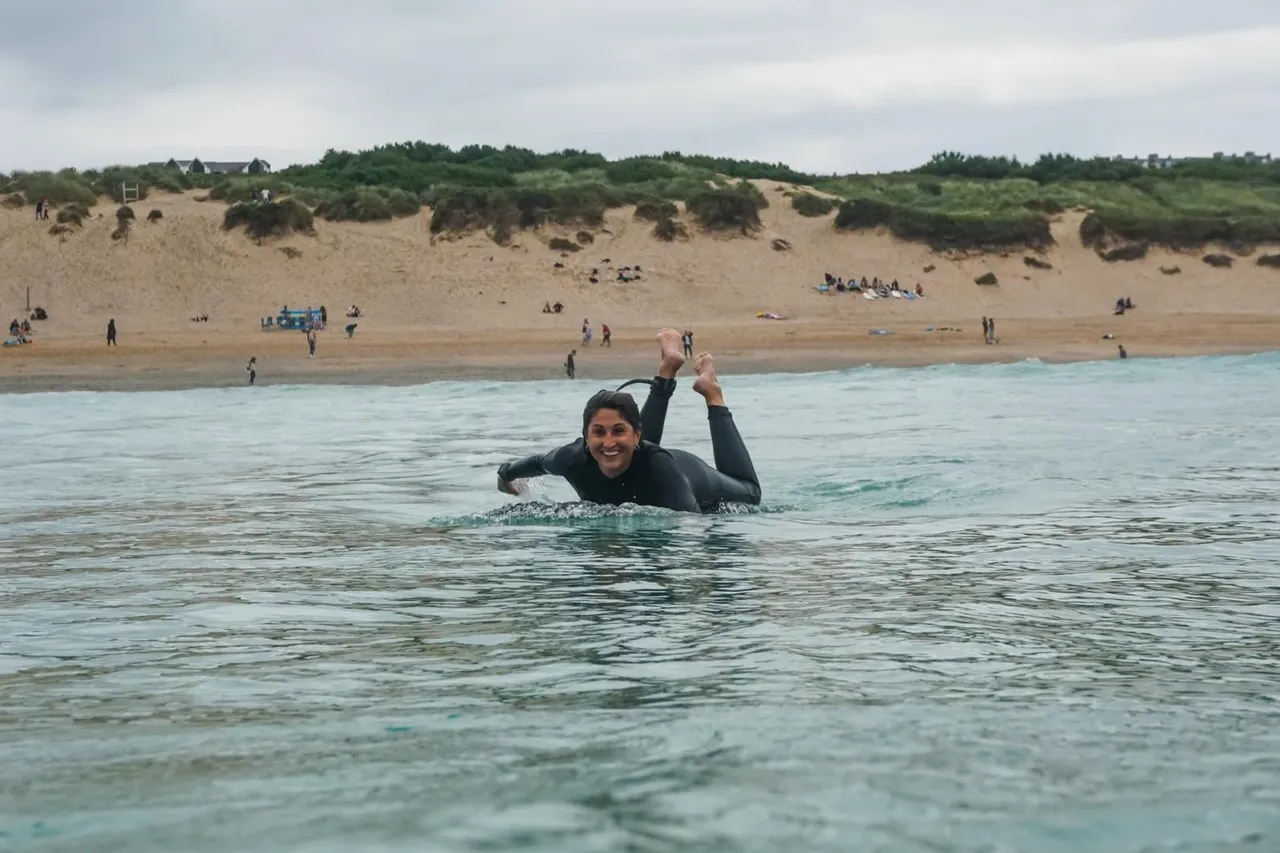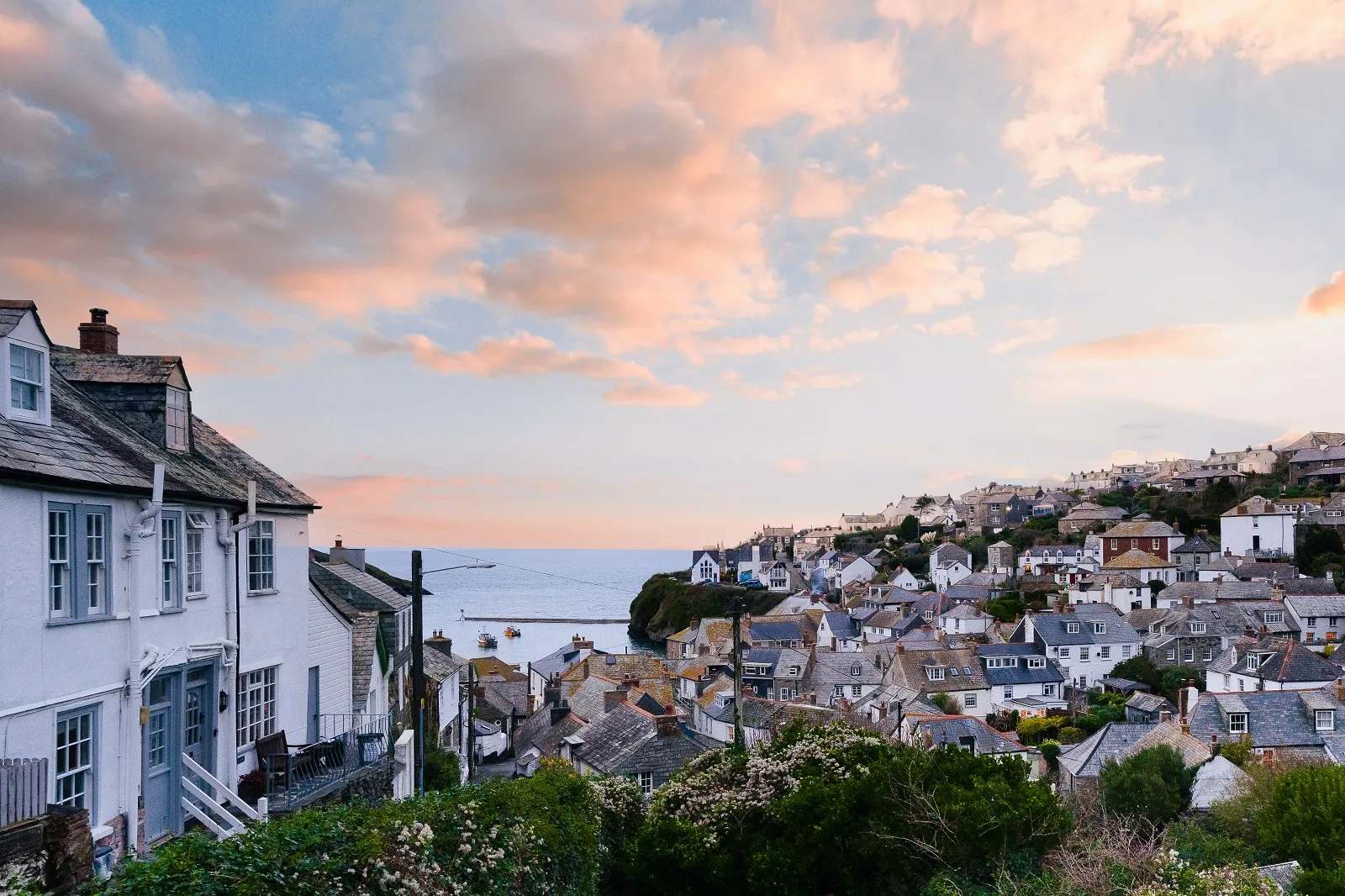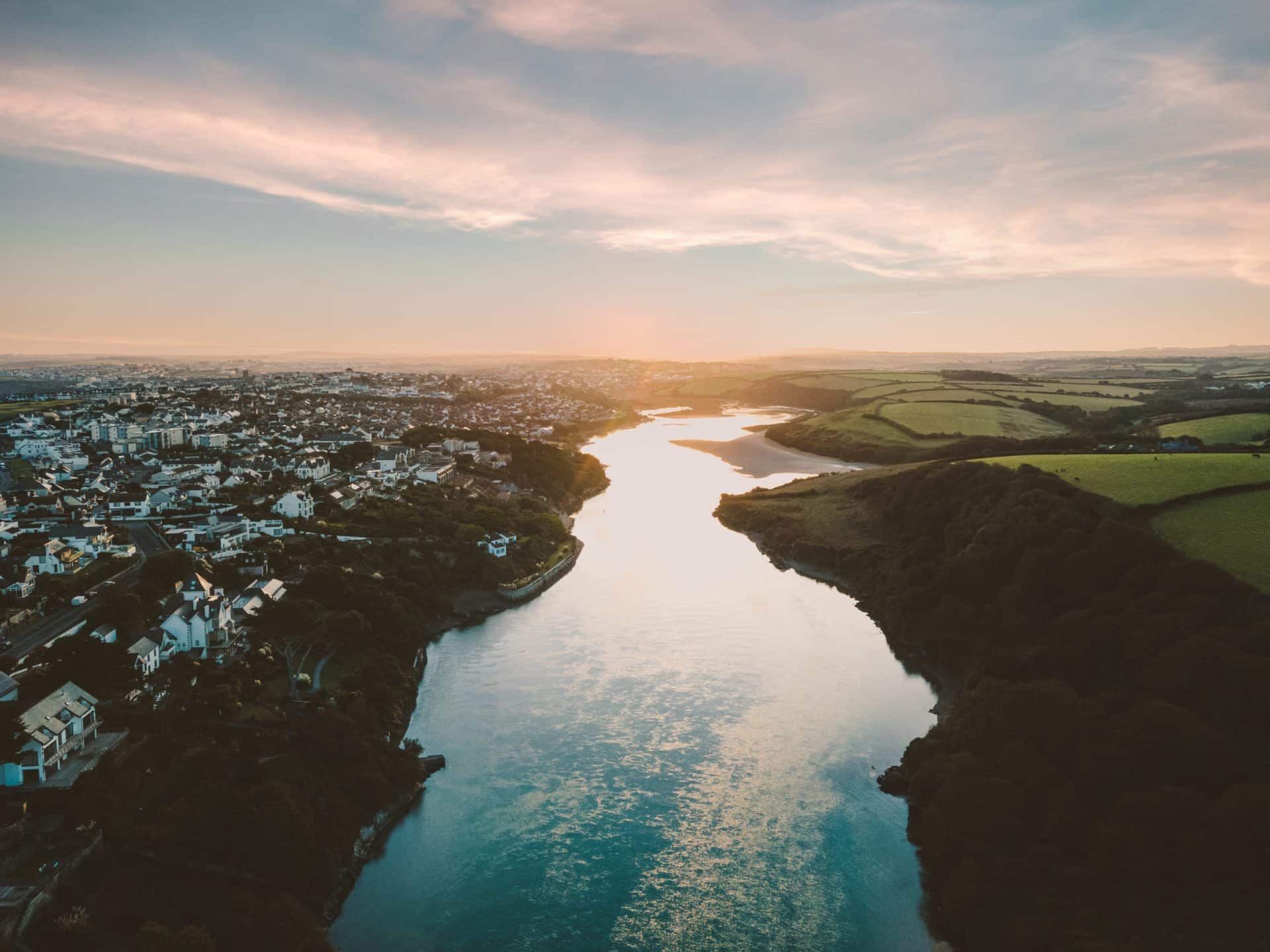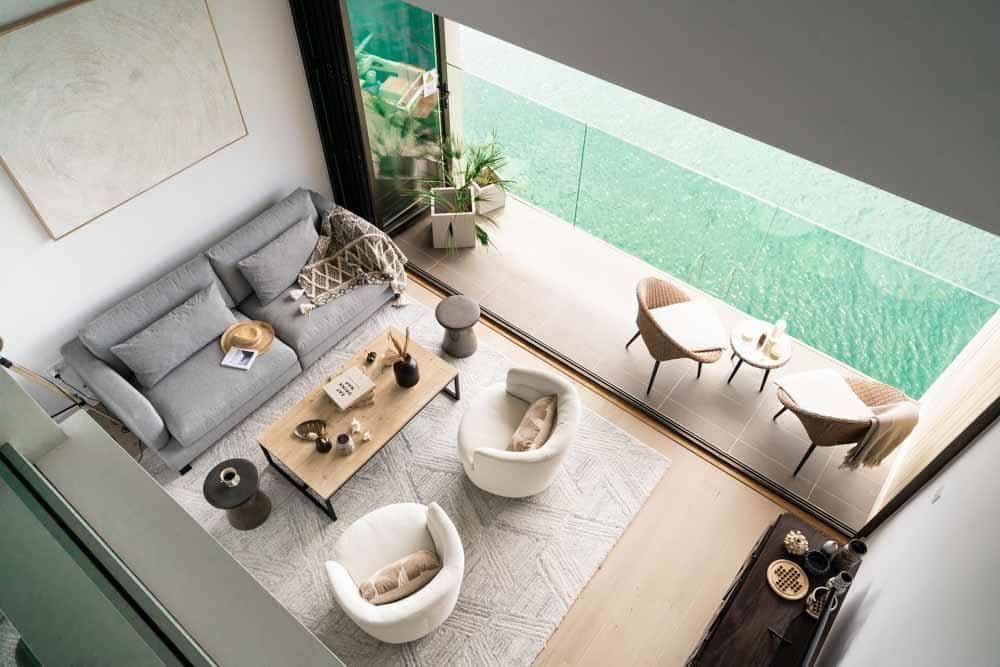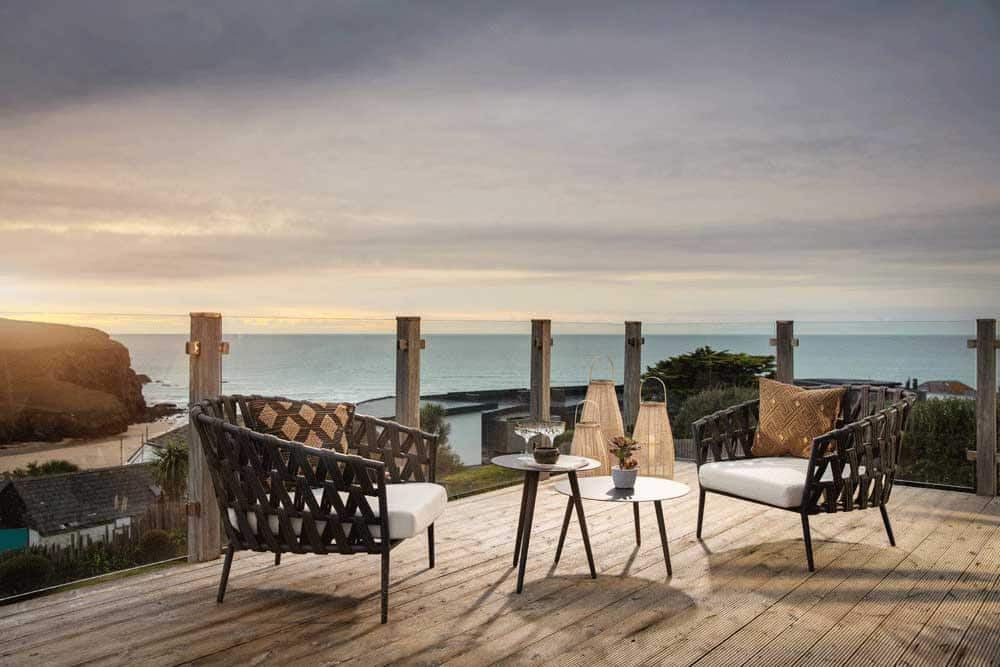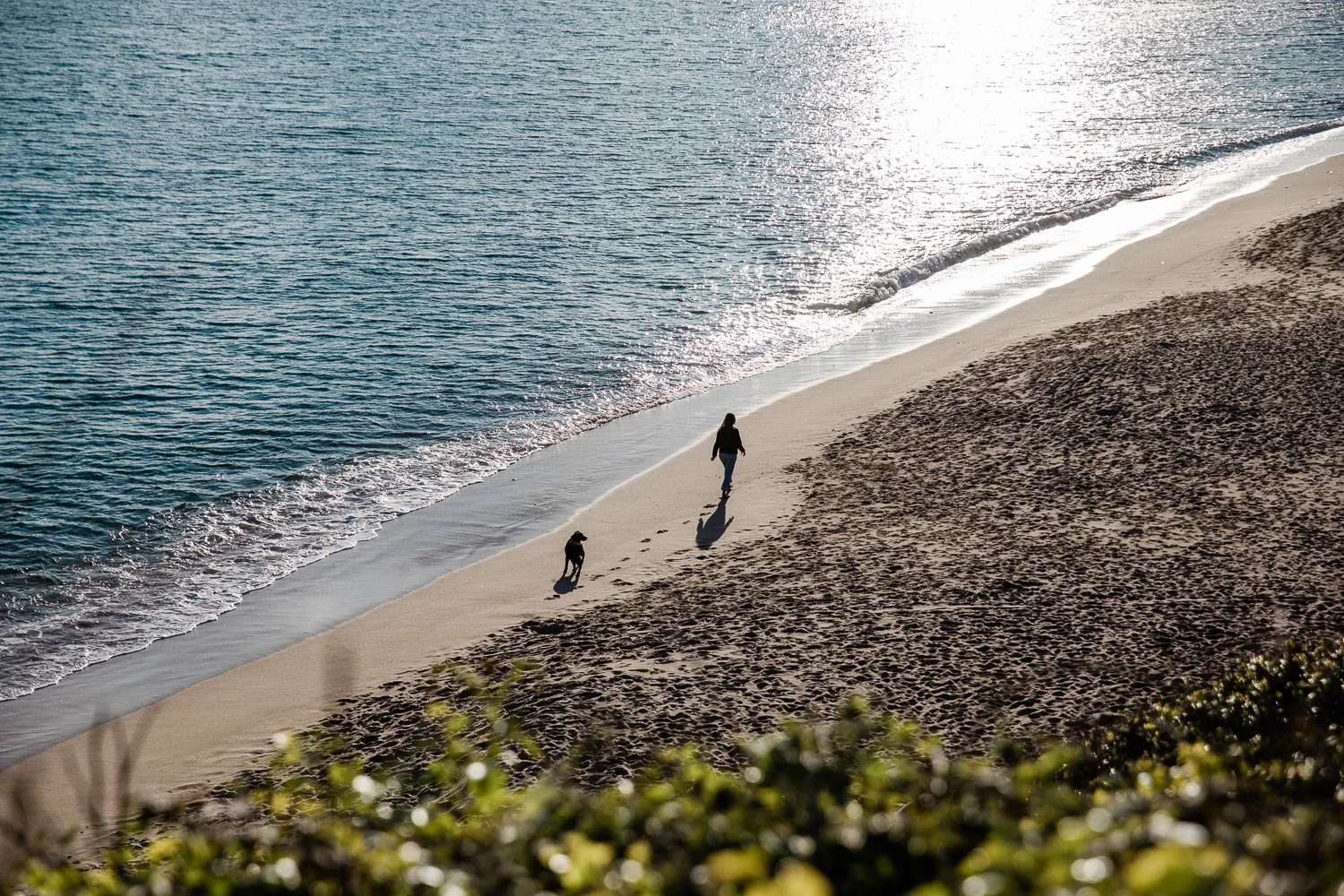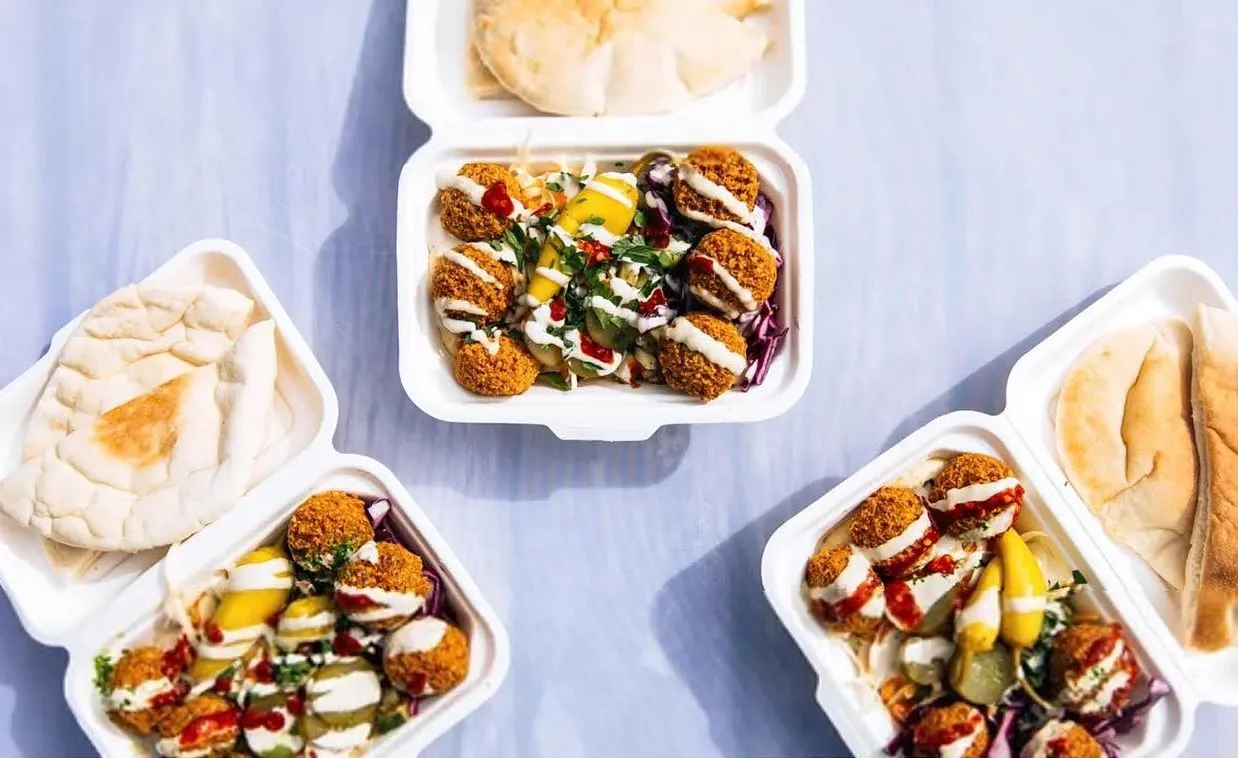
We take a dive into some of the sustainable, zero-waste and plant-based cafes and restaurants paving the way for an eco-friendlier food scene here in Cornwall.
More and more of us are trying to live a bit more sustainably, and an increasingly popular method is through a sustainable diet, achieved by opting for plant-based alternatives over meat. With the effects of animal agriculture on climate change becoming apparent, there’s more of an incentive to cut down on personal consumption. And it’s catching – with oat milk now as common as dairy in coffee shops, challenges such as ‘Veganuary’ on the rise, and supermarket shelves full of innovative vegan products, there’s never been more opportunity to make some simple swaps towards an eco-friendlier diet.
Although famous for its excellent seafood, Cornwall’s largely rural and lush landscape means there is plenty of space for veggie produce. This is being utilised across many forward-thinking Cornish plant-based cafes, which are paving the way for more sustainable eating around the county. Since Covid, holidaying locally has also been on the rise, and this has incidentally become a great way of cutting air miles and reducing carbon footprints. So why not take your sustainable stay even further, and sample some of the great plant-based produce Cornwall has to offer?
Here’s our top picks of vegan and veggie eats by the coast.
Quick bites
Fal Falafel Van, Falmouth
Fal Falafel Van are a Falmouth based street food vendor, serving fresh, authentic and award winning Middle Eastern street food. Their menu largely celebrates all things falafel and hummus, homemade to their own unique recipes and served in pittas or salad boxes with pickles, chillies, herbs and sauces. Grab lunch here on the go during a day out in this vibrant seaside town.
Snail’s Pace Café & Bike Hire, Bodmin
For rolling moorland, secluded cycle trails and organic produce, head inland to this unique ‘off grid’ space, set in a beautiful valley at Wenfordbridge near Bodmin Moor. Combining quick vegan and veggie eats with homemade cakes and bakes, Snail’s Pace Café is your refuel station during a day amongst the dynamic landscape of Bodmin Moor. The option for bike hire also encourages you to leave the car behind and explore the many cycle paths in this area, including the iconic Camel Trail.
Be Kind the Vegan Coffee Caravan, Hayle
This down-to-earth, grab-and-go caravan is parked up in South Quay, Hayle, and serves delicious vegan cakes and coffees with one message at its core – be kind, to yourself, others, and the planet. And this is does, with its fully plant-based menu offering an eco-friendly snack option on your beach walk. Try their kebab wraps and bagels, enjoyed with a sea view.
Discover our bespoke holiday cottages in Hayle, a short drive from St Ives and Pendeen.
Eco Dining
Ugly Butterly, Carbis Bay
Adam Handling is one of the chefs pioneering the sustainable food scene here in Cornwall. His new restaurant, Ugly Butterly, is a gem of food innovation and marks a new way of dining in a county so well known for its traditional fast food. Situated on the shores of Carbis Bay, the site of the 2021 G7 summit, Ugly Butterly is a zero-waste restaurant. Any trims or offcuts from its beautiful and locally sourced dishes are transformed into delicious bar snacks and drinks, proving Adam’s ethos that as there is no such thing as an ugly butterly, there is also no such thing as food waste. Although not entirely vegan, the restaurant offers a full, separate vegan menu, including a plant-based tasting menu.
New Yard, Helston
New Yard is situated in a historic stable yard at Trelowarren in Cornwall, which has been owned by the same family for over 600 years. Its sustainable approach to dining may seem futuristic, but nods to traditional methods of self-sustaining households where everything eaten is grown at home and on site. Each night, their beautiful menu changes and is entirely composed of produce foraged from the estate, grown in their walled garden or ethically sourced from the local area. In 2021 they were awarded a Michelin Green Star, which recognizes gastronomy and sustainable practices. They do serve dishes featuring meat and dairy produce, all locally and ethically sourced, but they also run a vegetable-led menu which is entirely vegan and showcases a delicious variety of seasonal vegetables.
The Bean Inn, Carbis Bay
For a more relaxed dining experience, try Carbis Bay’s only fully vegan and vegetarian restaurant. Their ethos is simple – nourishing plant-based food, a relaxed and intimate setting, and takeaway options with plant-based compostable packaging. Not just delicious, their dishes are beautifully presented and packed with colour and flavour. Taste their globally inspired plates and leave feeling satisfied and enriched.
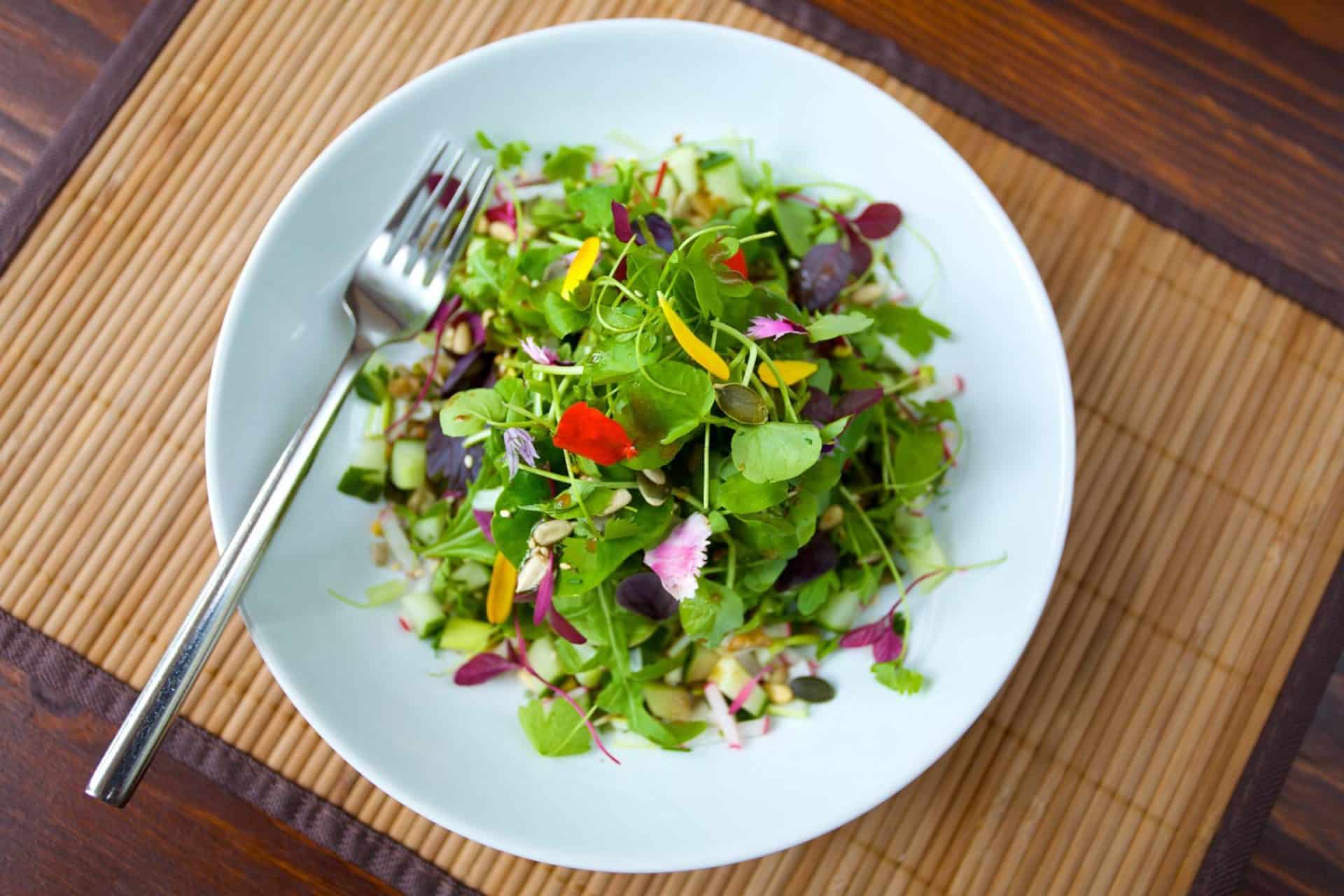
To sample the best vegan and vegetarian food in Cornwall, browse our locations to find a retreat in the right place for you. Be sure to keep an eye on our special offers page, too, for the latest deals.
Explore the finest food and farm shops in Cornwall, where local produce and culinary delights await to enhance your coastal experience.
Eco conscious and visiting Cornwall with an electric car? Check out our holiday lets with electric car (EV) charging points.
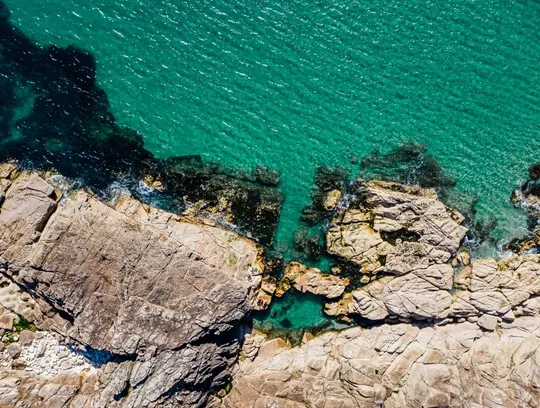
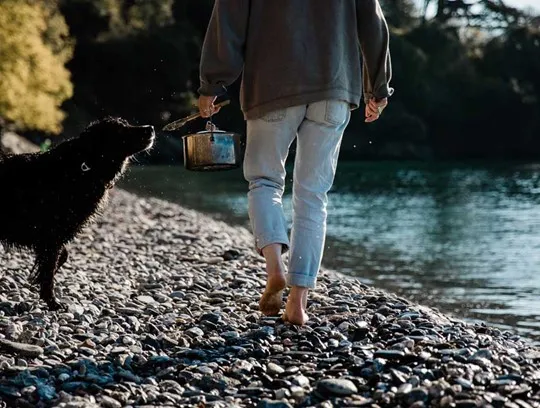
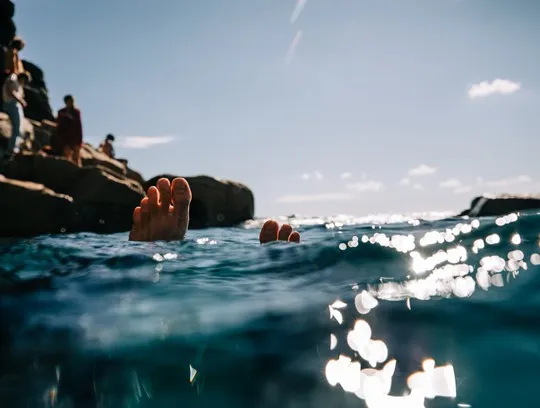
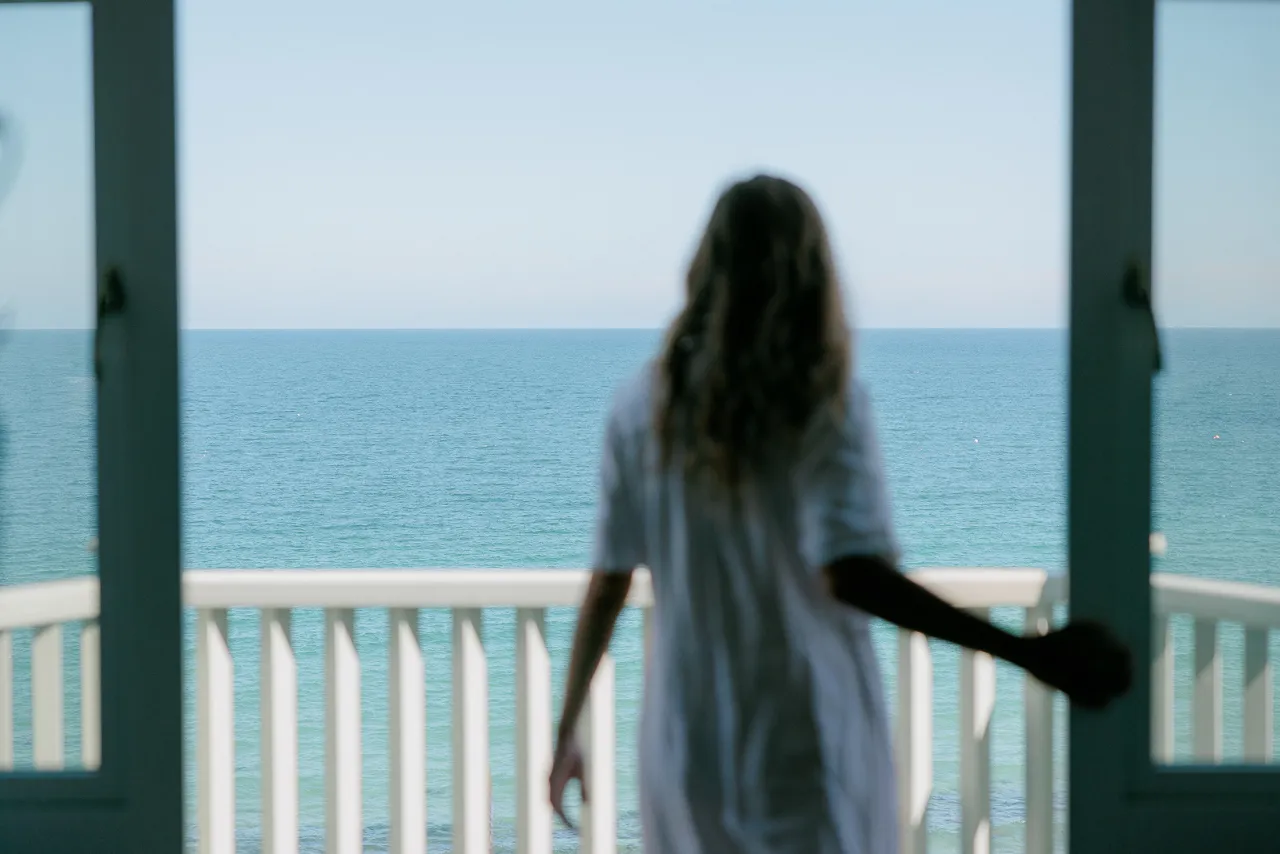
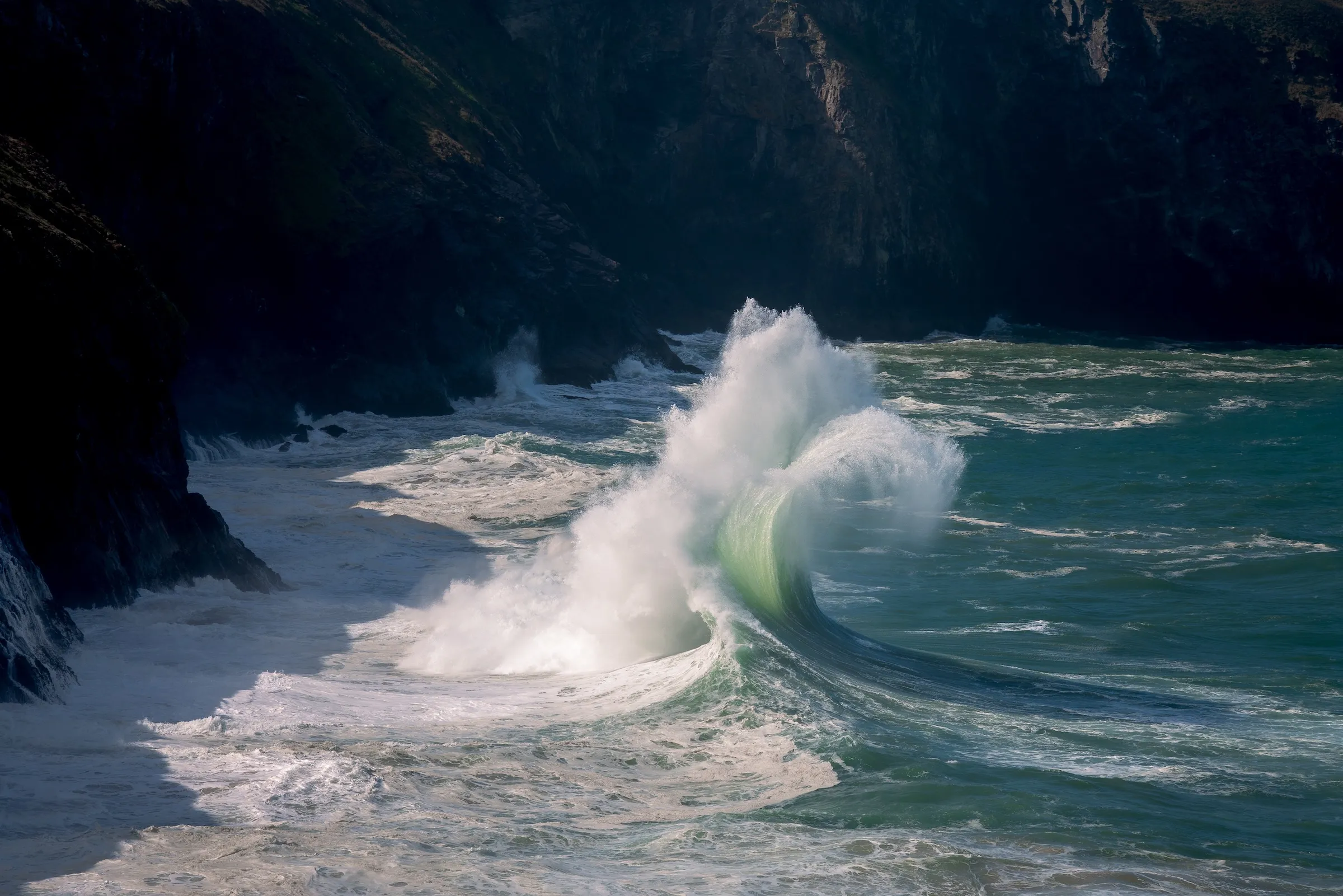
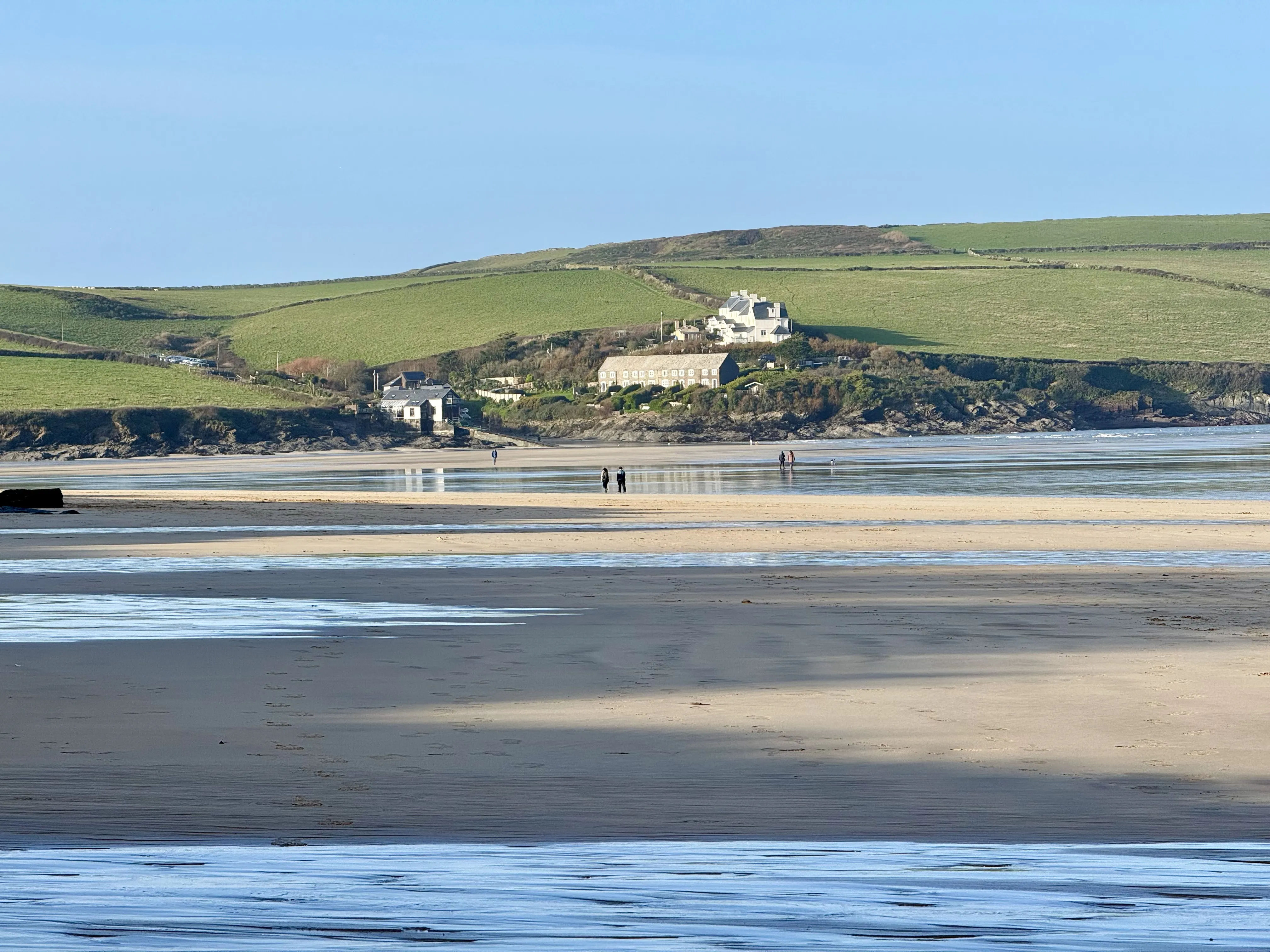
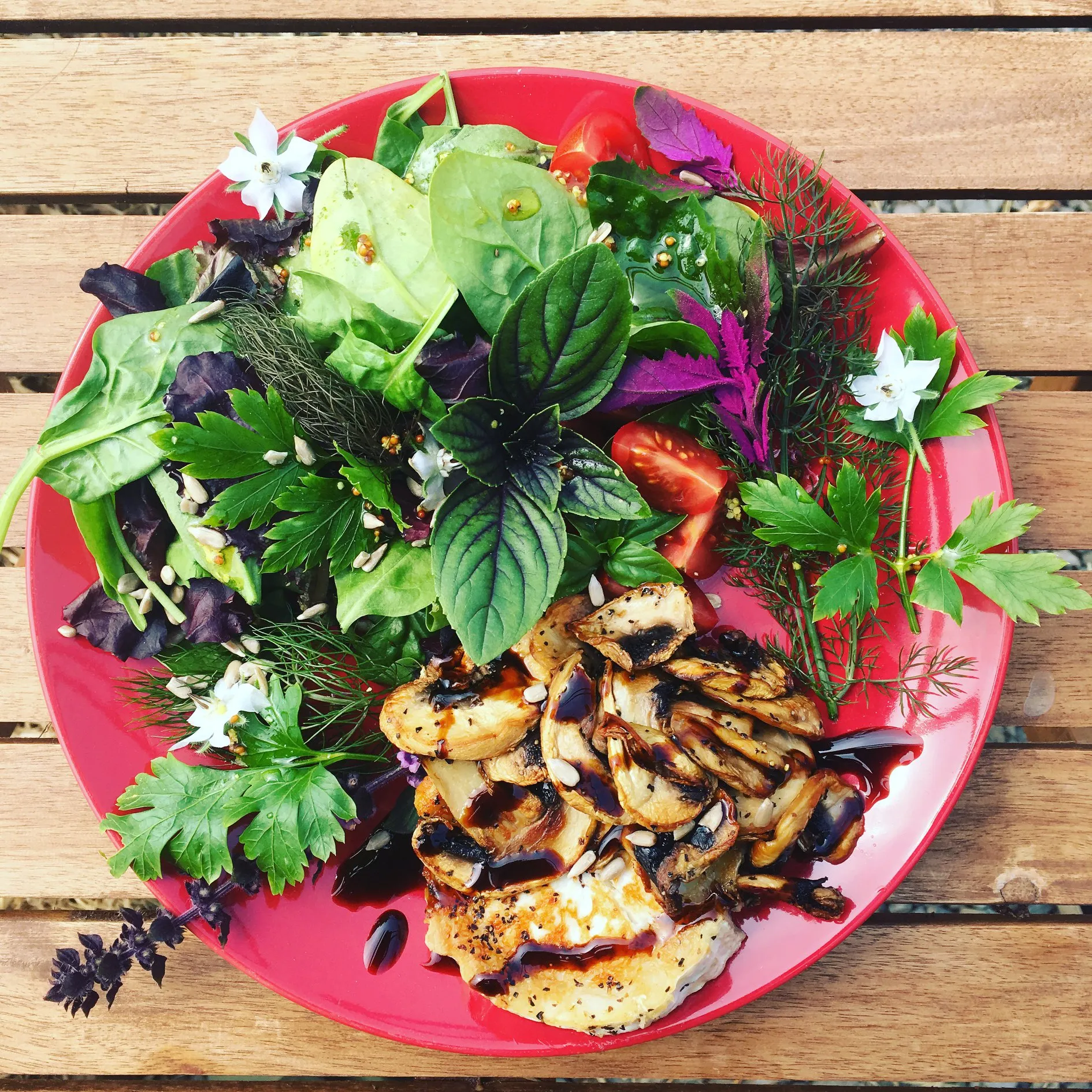
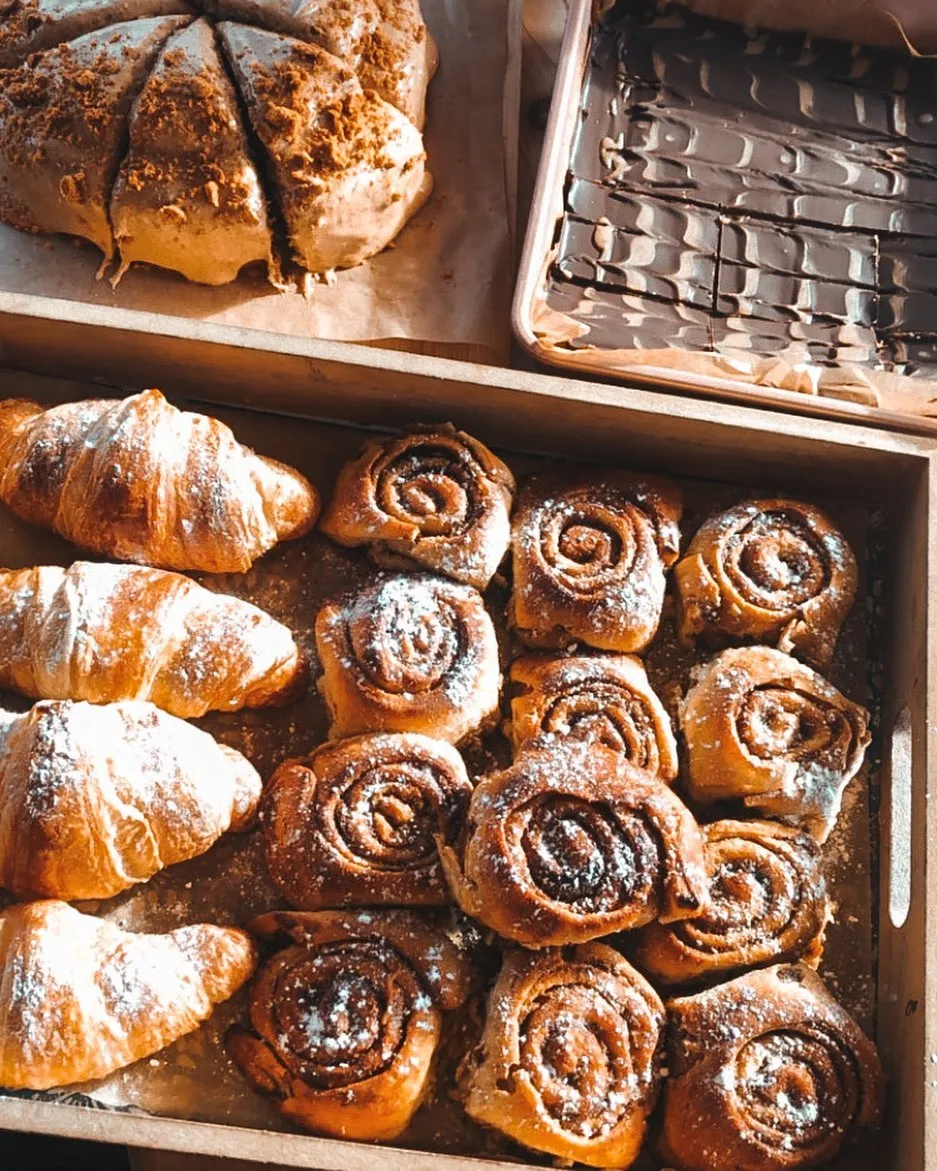
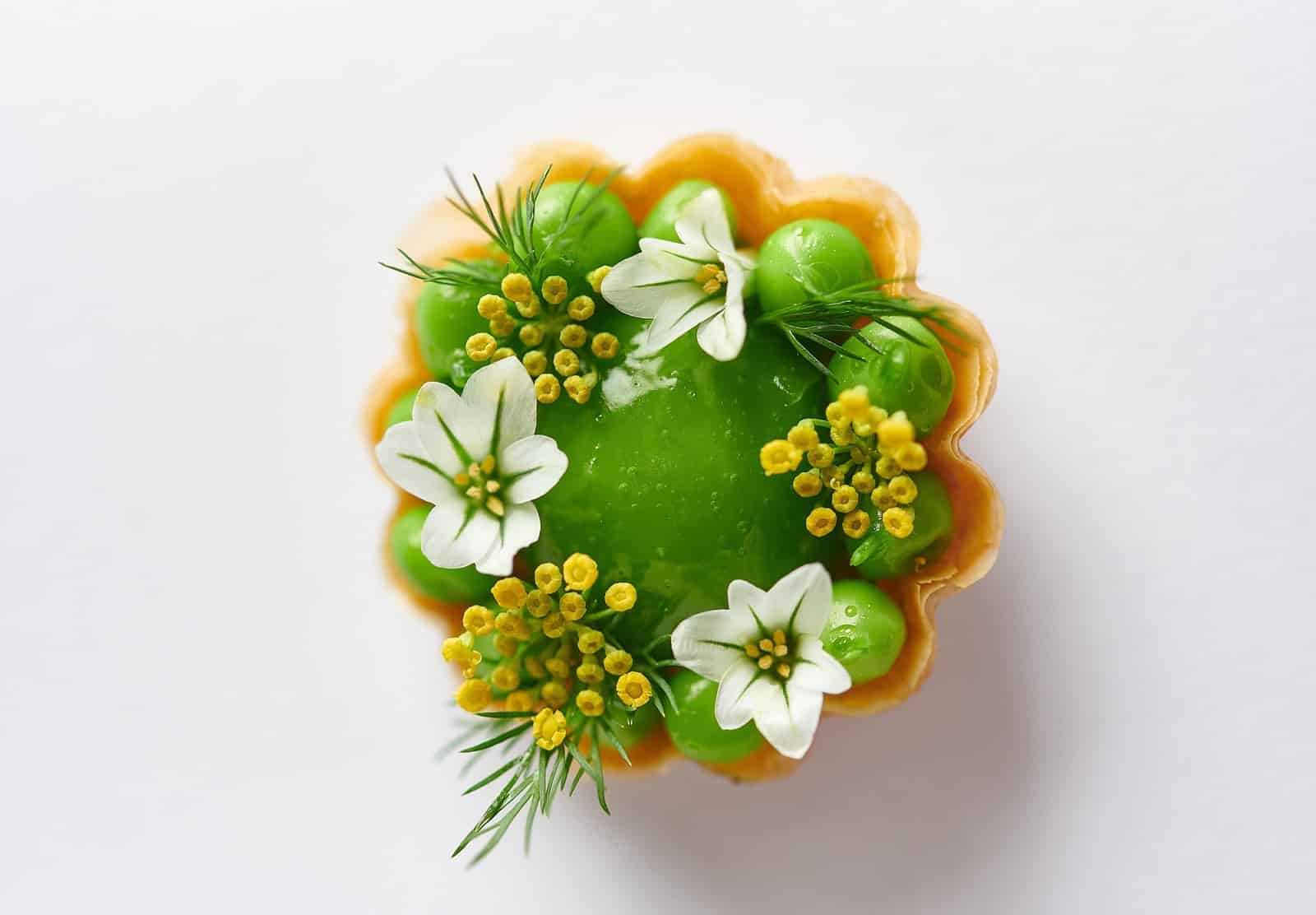
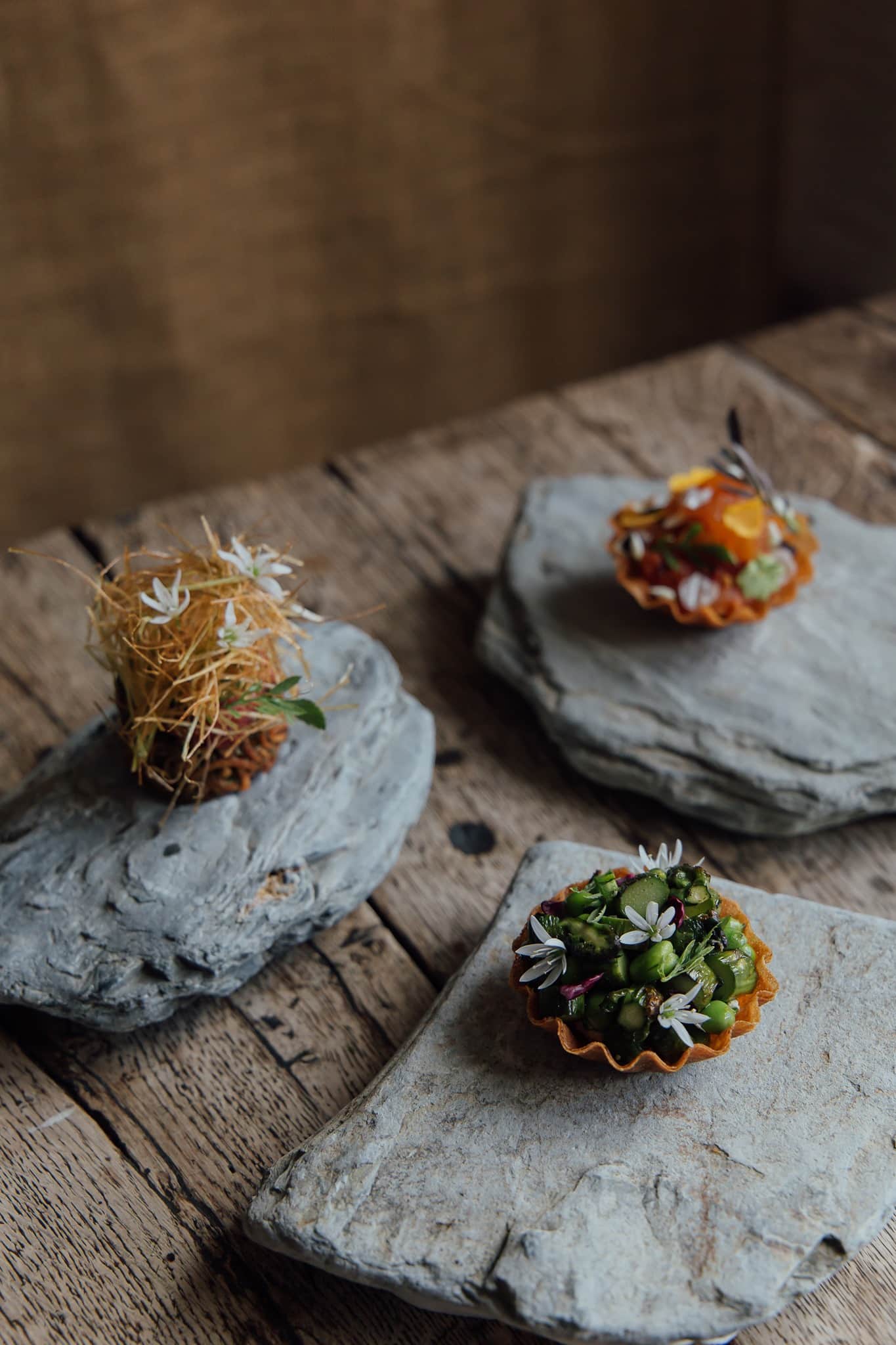
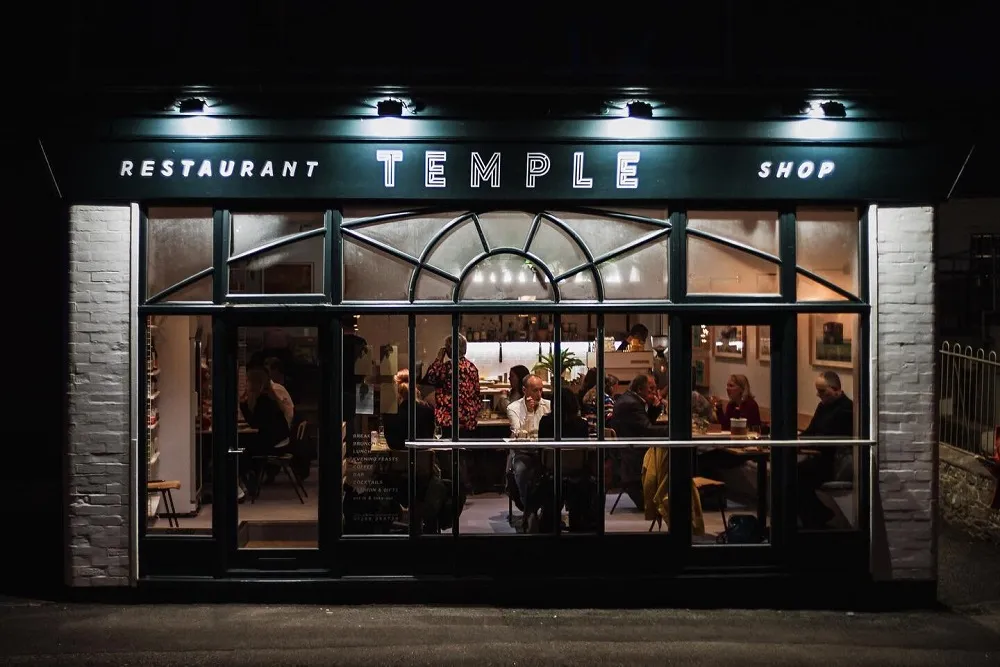
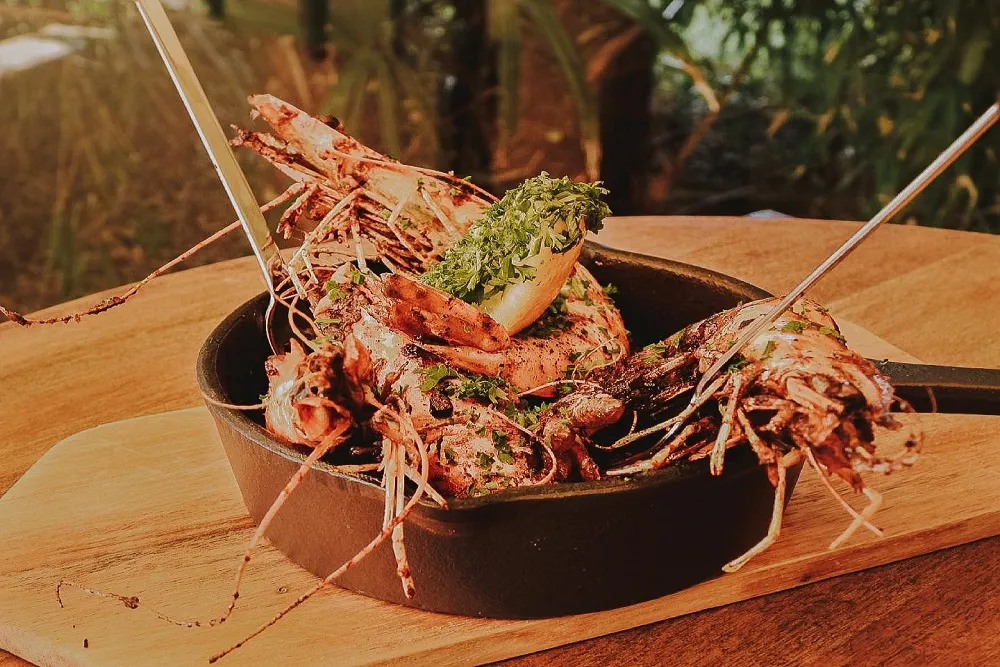
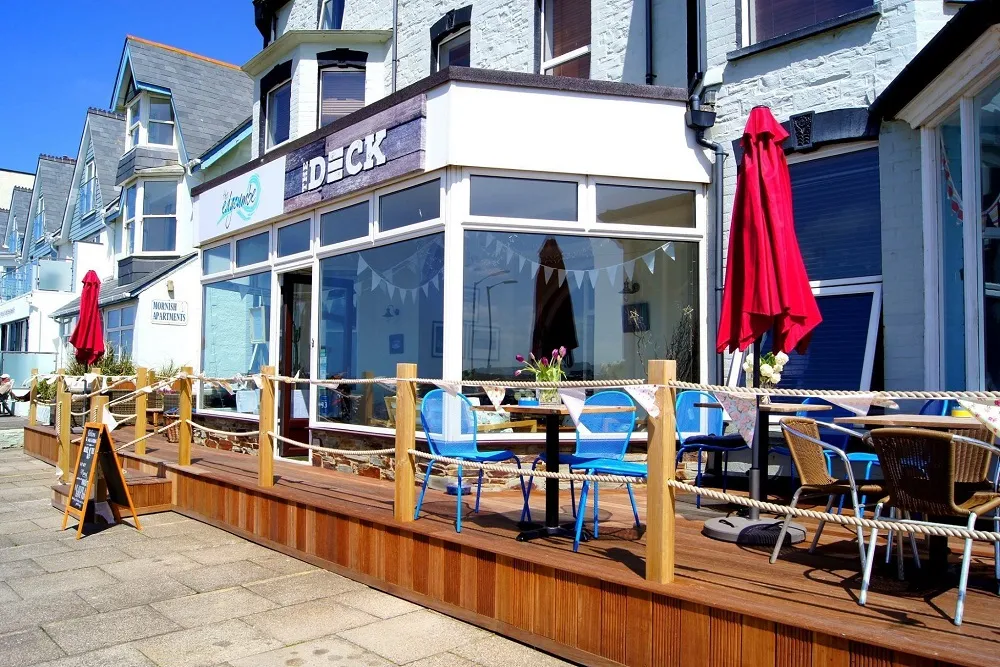
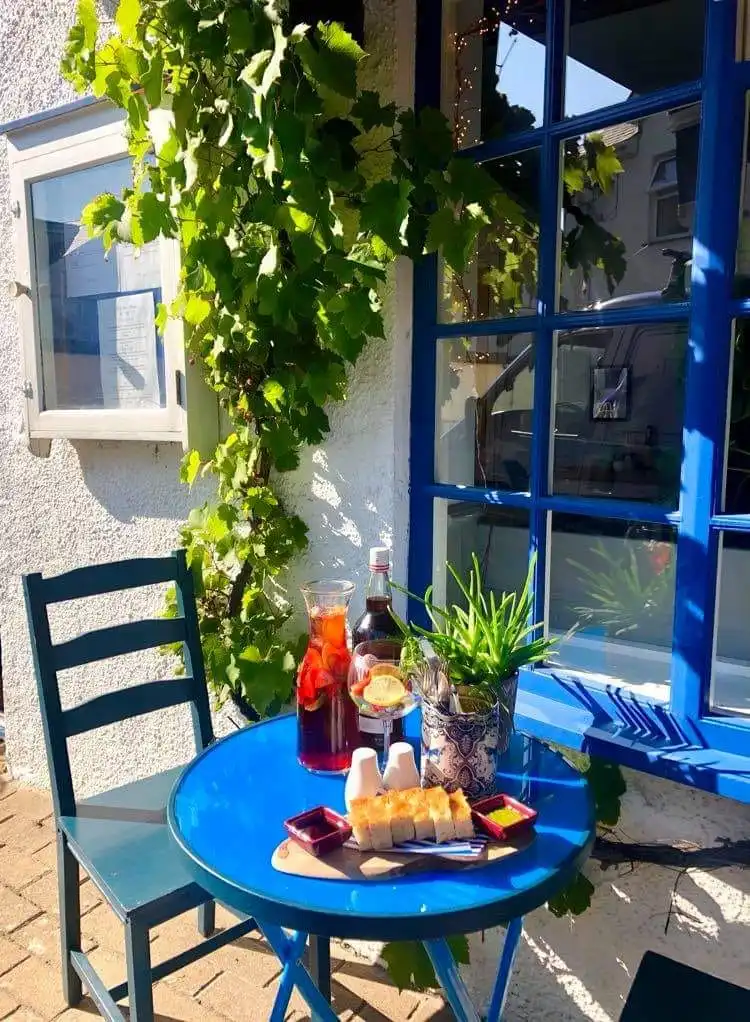
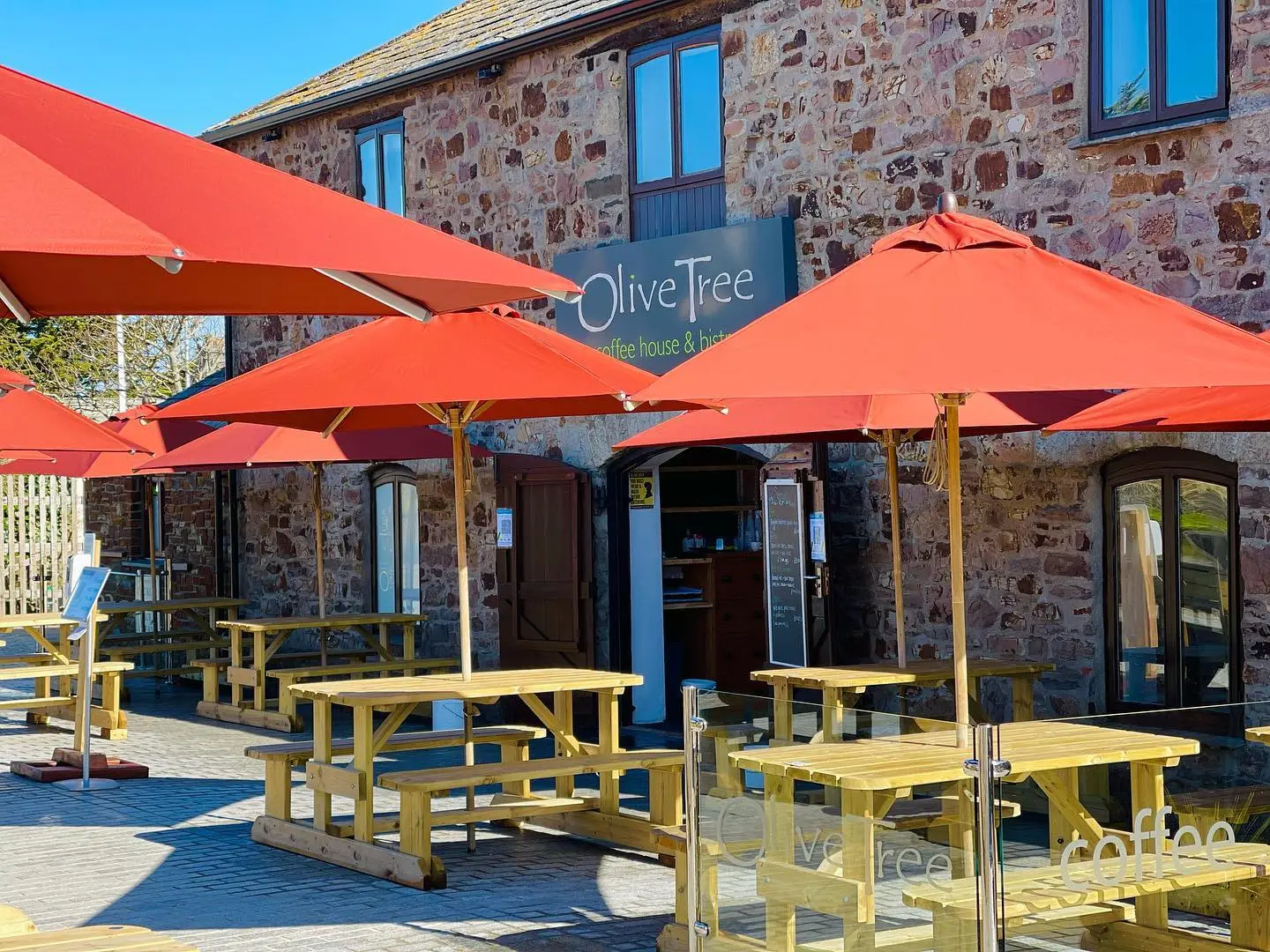
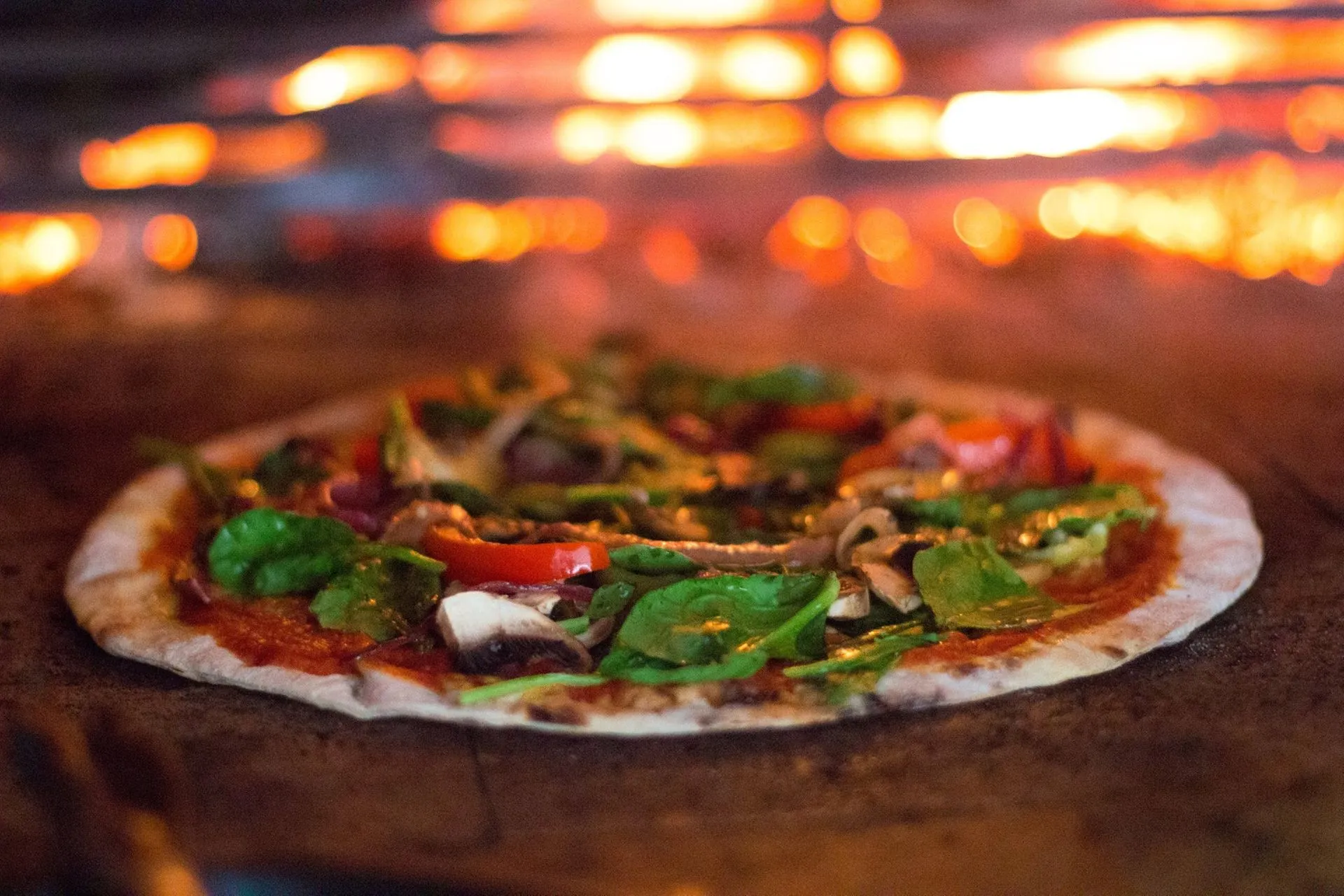
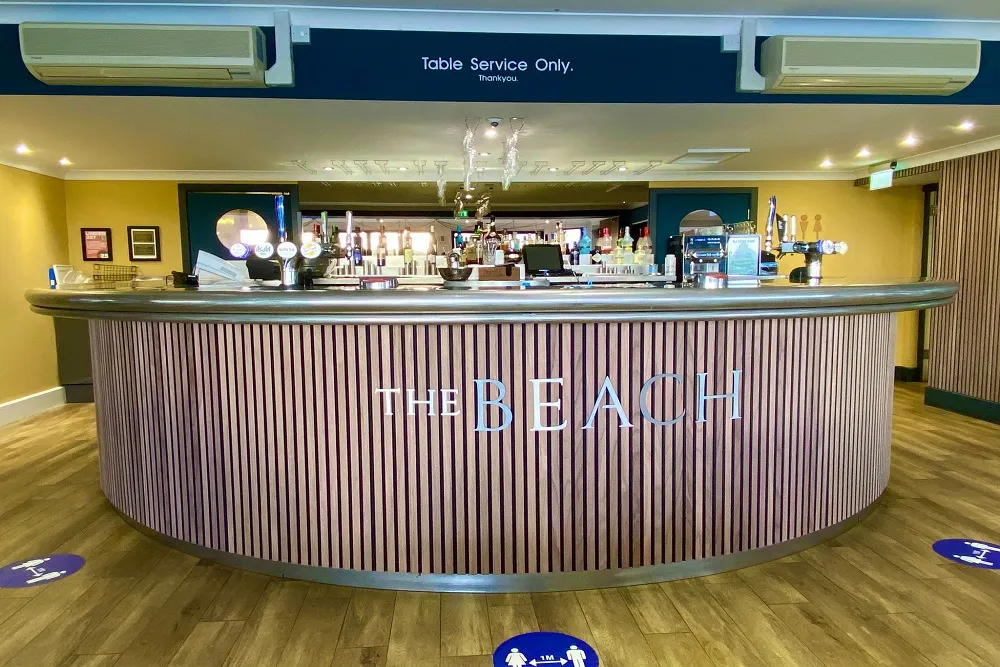
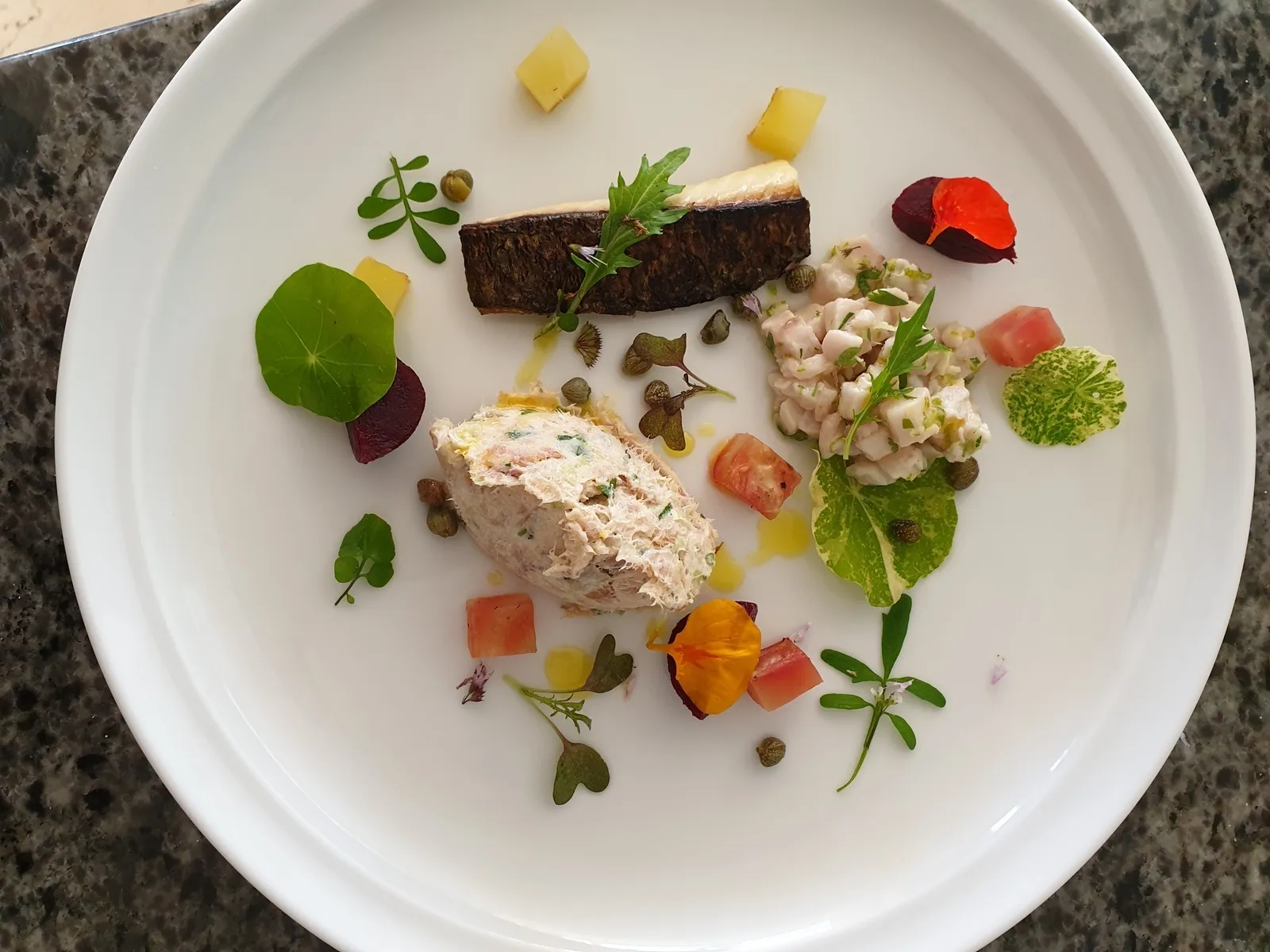
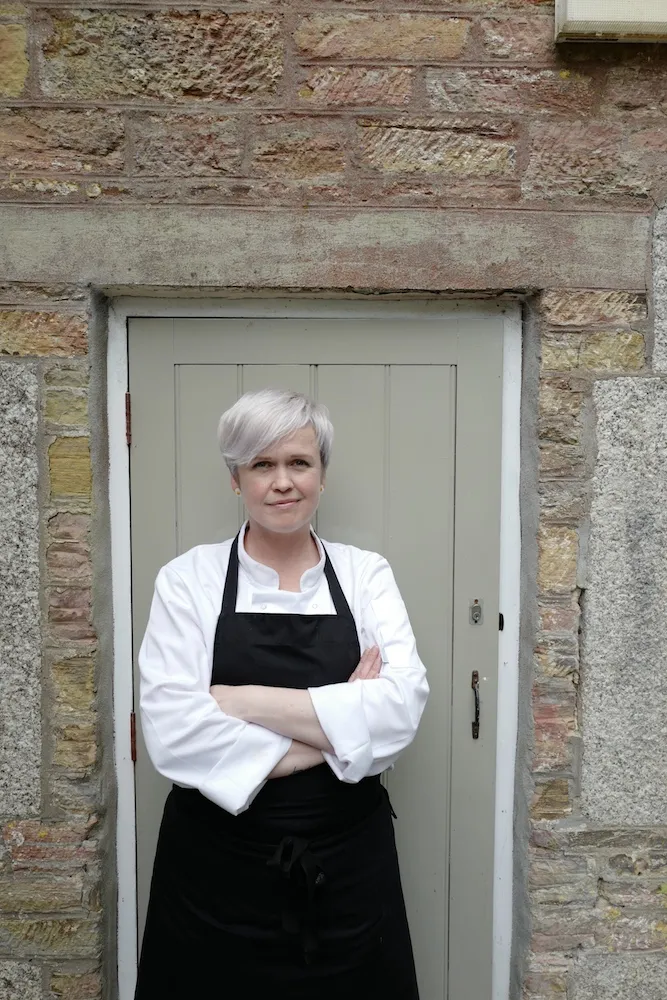
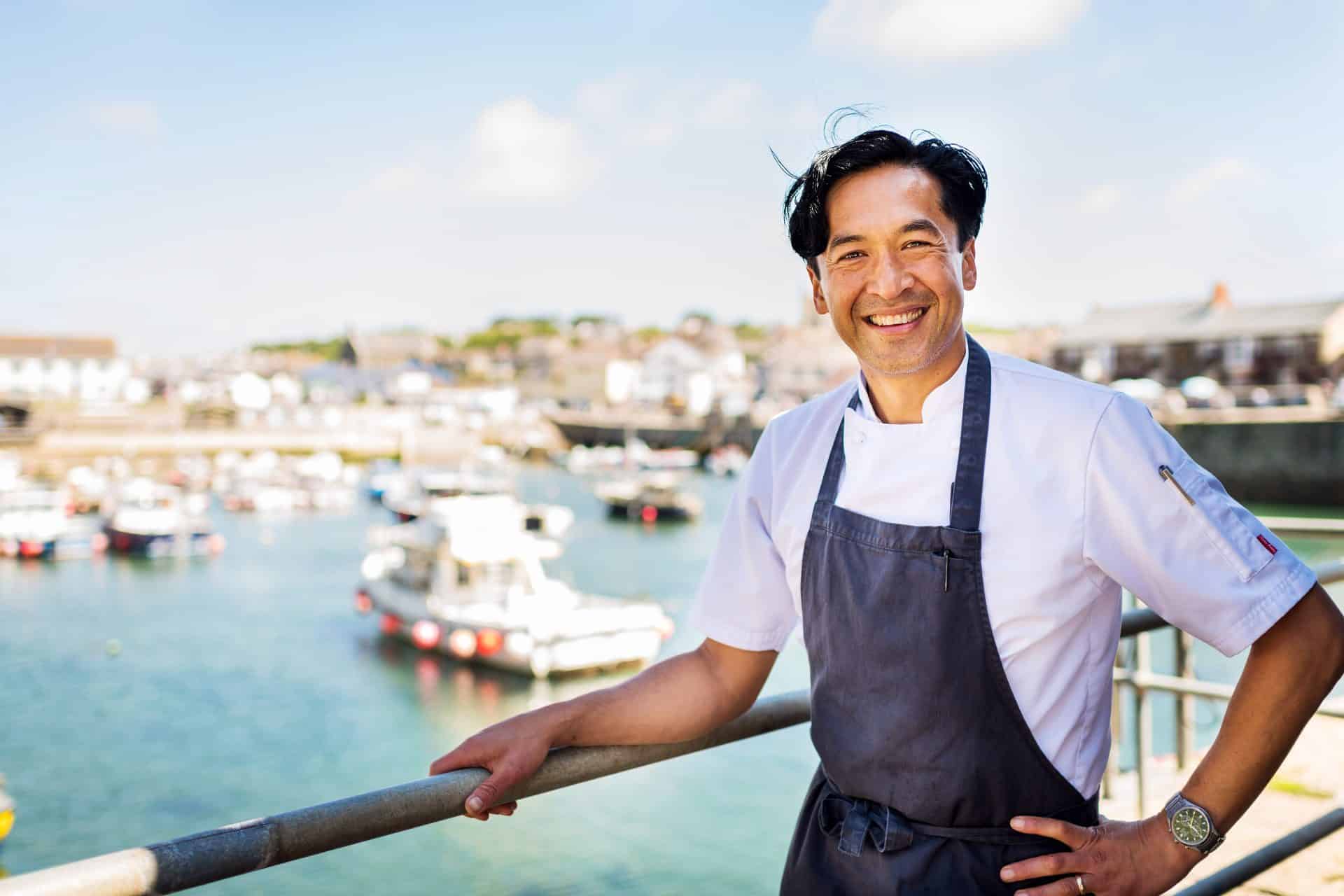 “We are looking forward to our new season tasting menu here at Kota, taking advantage of local produce that surrounds us in Cornwall. These include seared hand-dived scallops with xo sauce, crispy onions and venison tartare from a local venison farm which is the best I have ever used (West Country Premium Venison).
“We are looking forward to our new season tasting menu here at Kota, taking advantage of local produce that surrounds us in Cornwall. These include seared hand-dived scallops with xo sauce, crispy onions and venison tartare from a local venison farm which is the best I have ever used (West Country Premium Venison).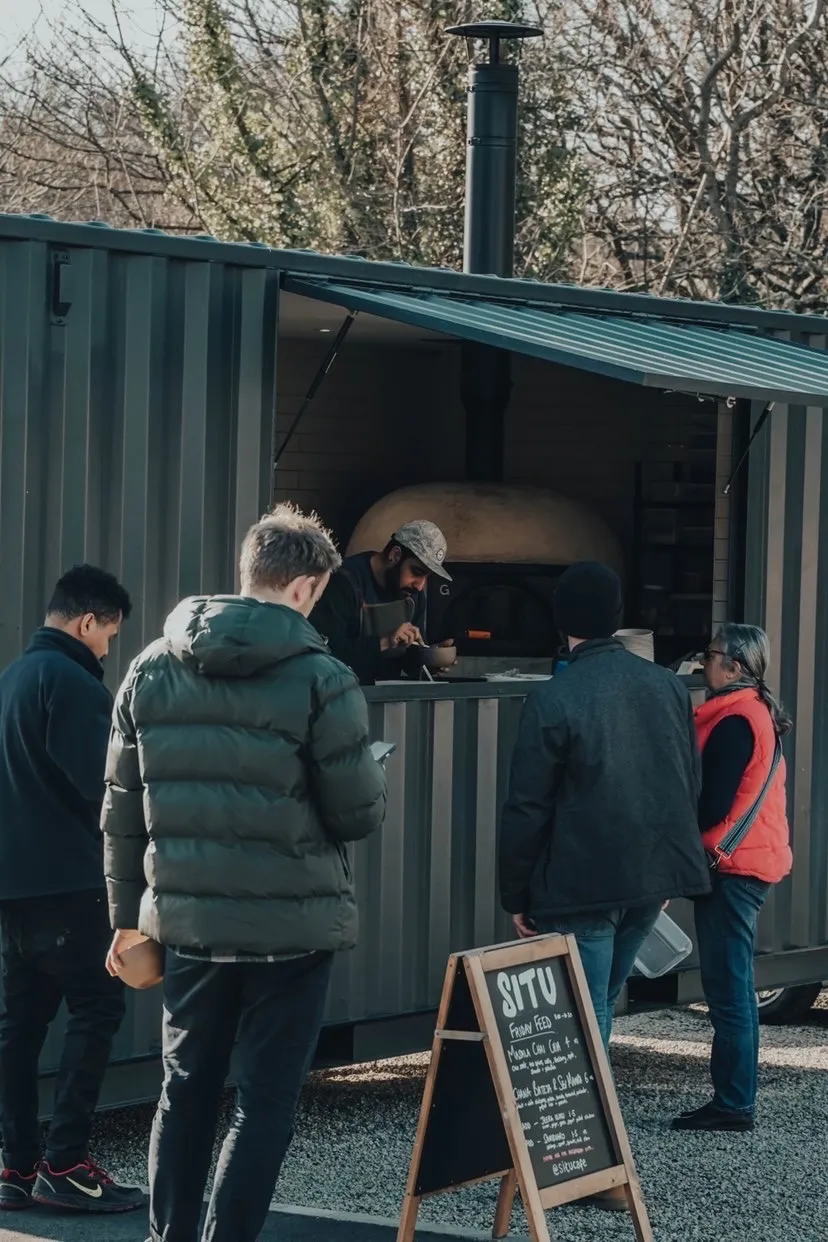
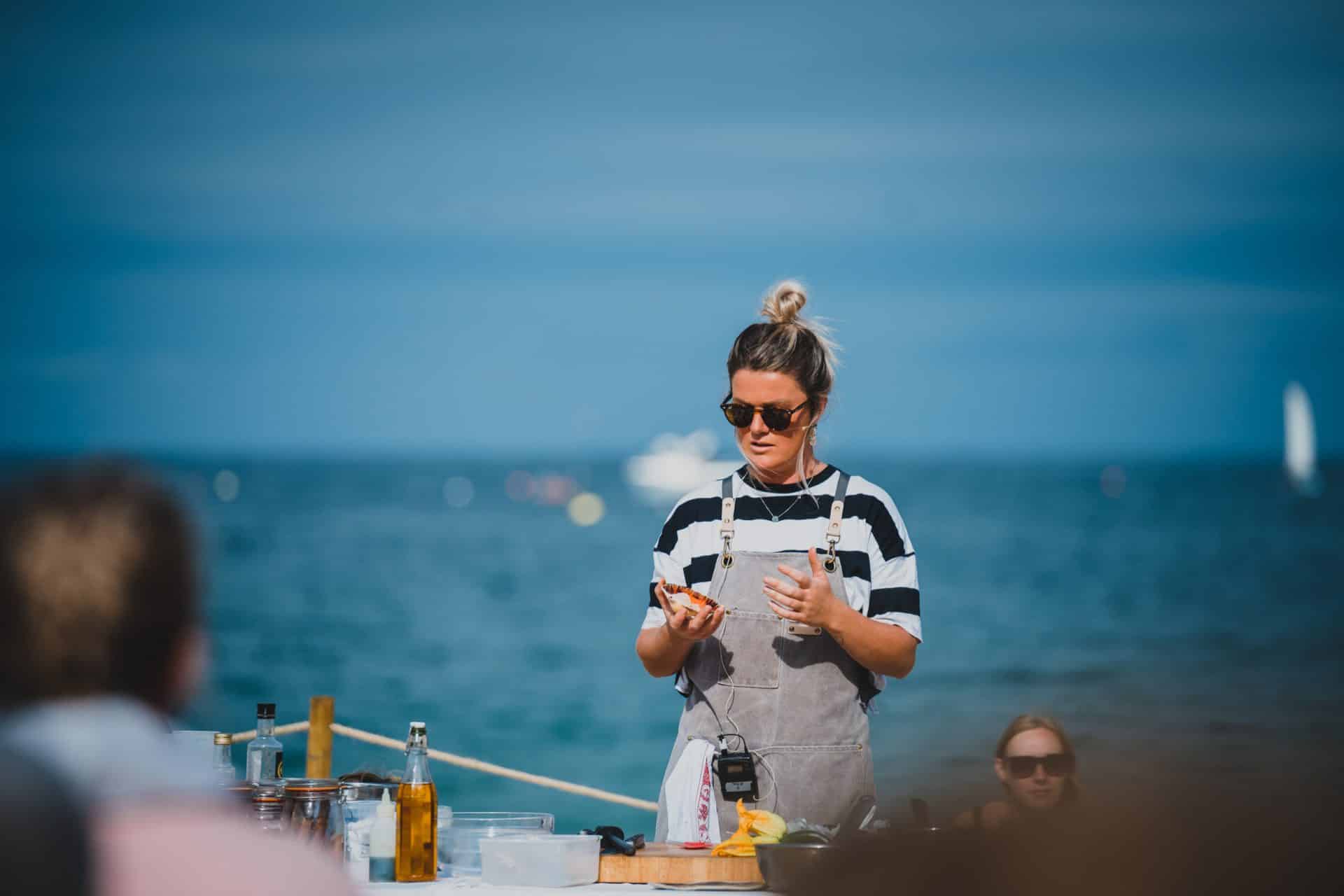 “I’m most excited about working with new local suppliers. Most recently, I’ve been daydreaming of a dish featuring Melder Honey, which is a honey that’s really local to my hometown of St Ives. It’s the best honey I’ve ever tasted and Toby the owner is so great to work with, often turning up with a truck full of bees and honey for me!
“I’m most excited about working with new local suppliers. Most recently, I’ve been daydreaming of a dish featuring Melder Honey, which is a honey that’s really local to my hometown of St Ives. It’s the best honey I’ve ever tasted and Toby the owner is so great to work with, often turning up with a truck full of bees and honey for me!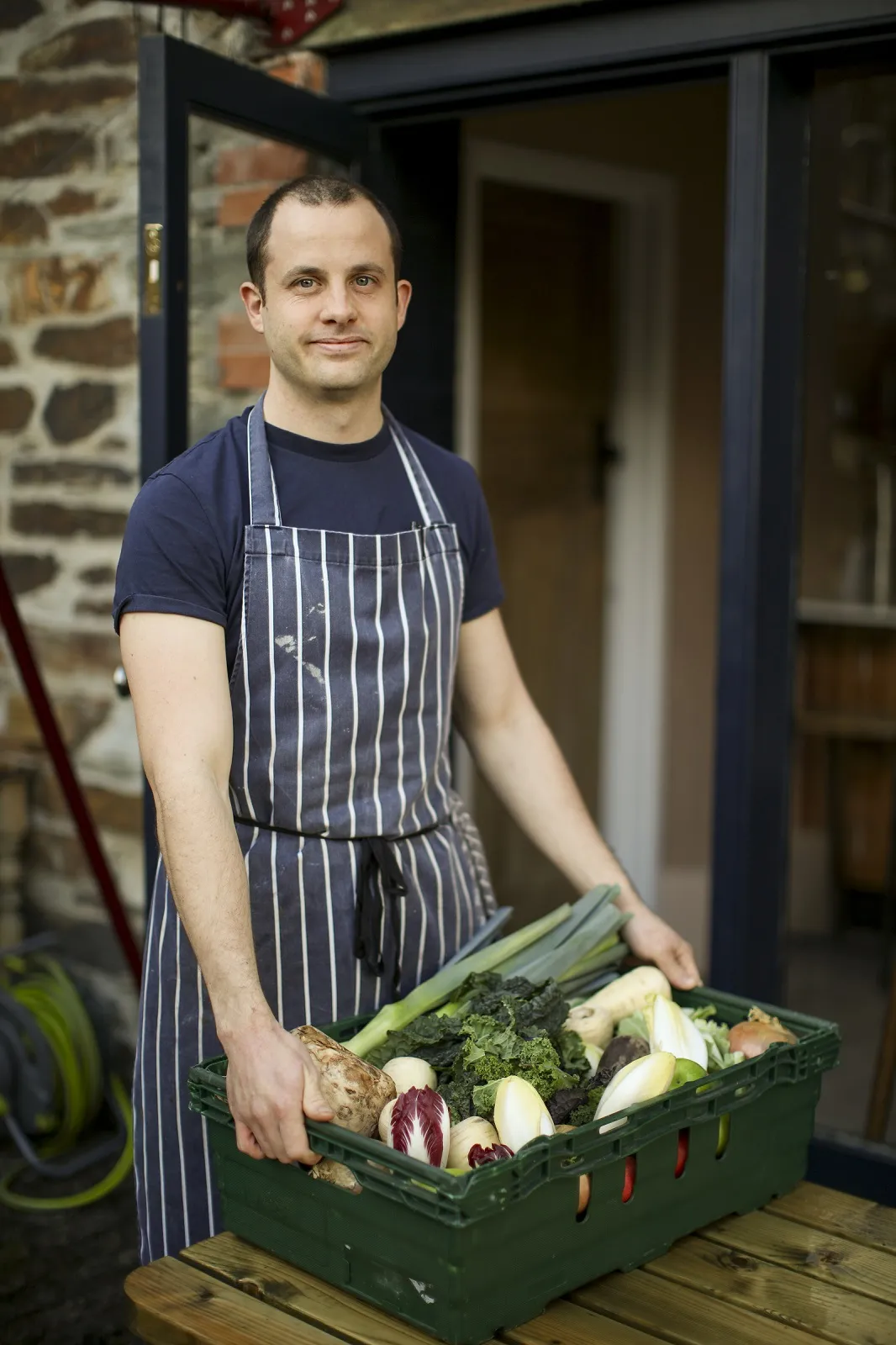
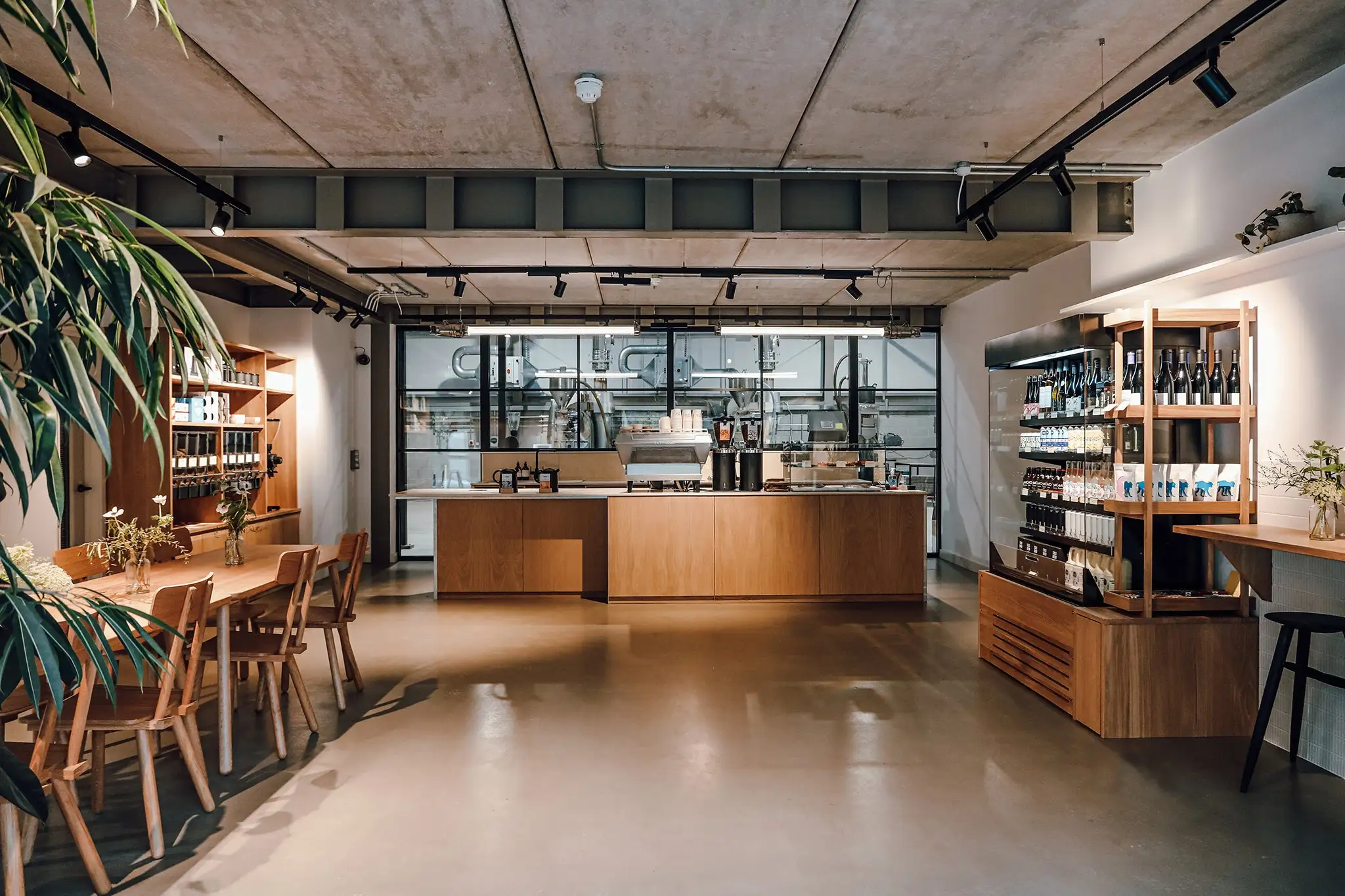
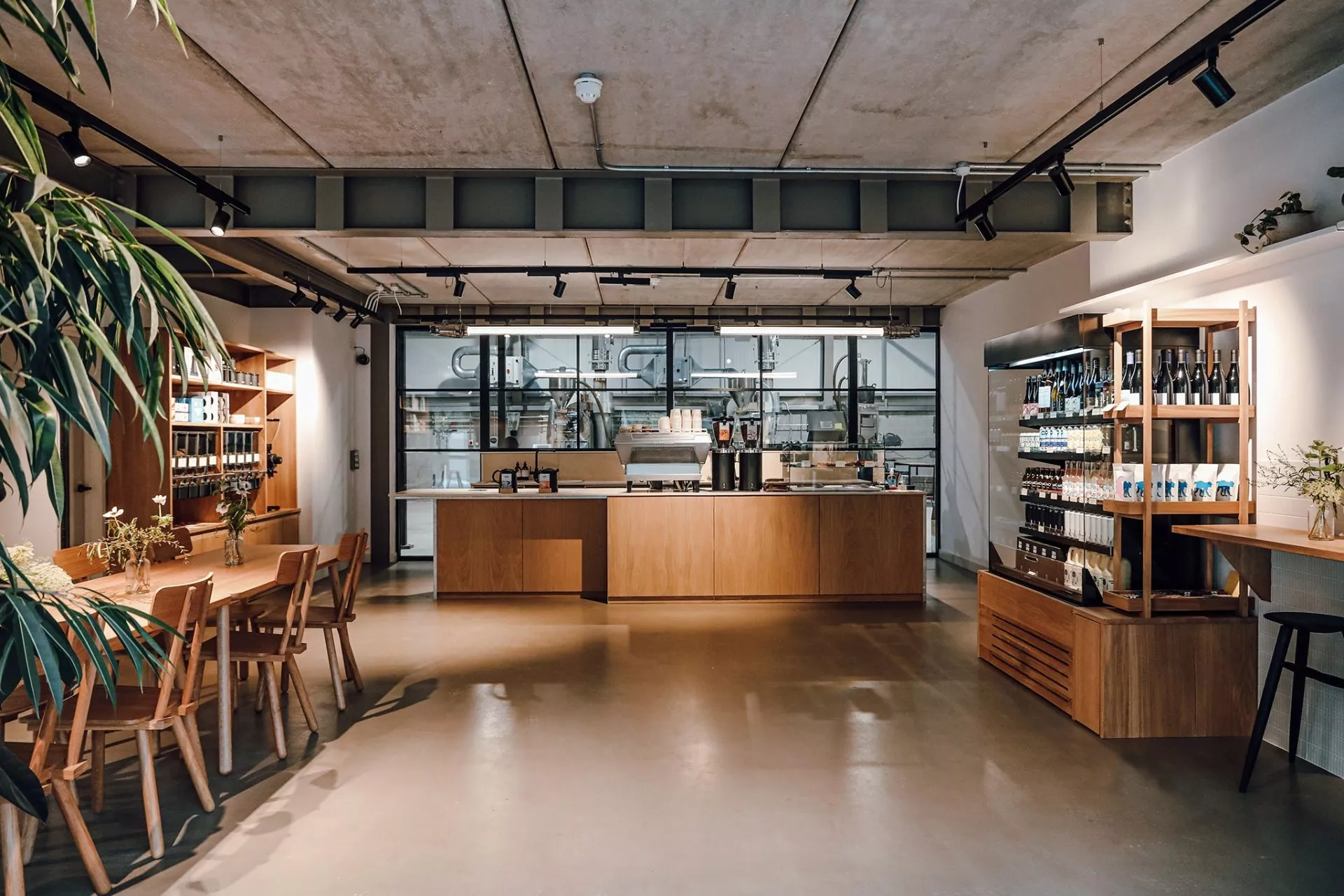
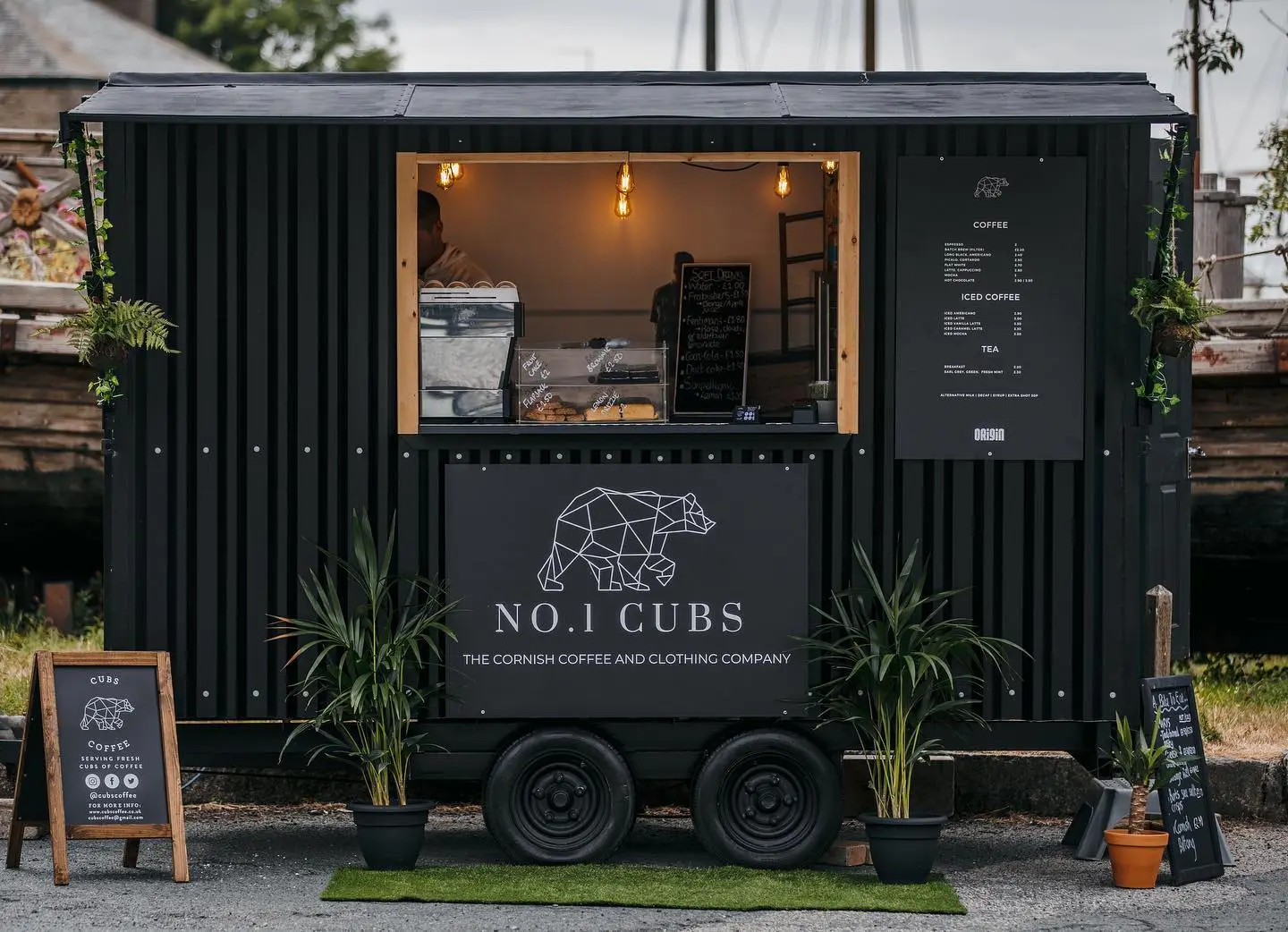
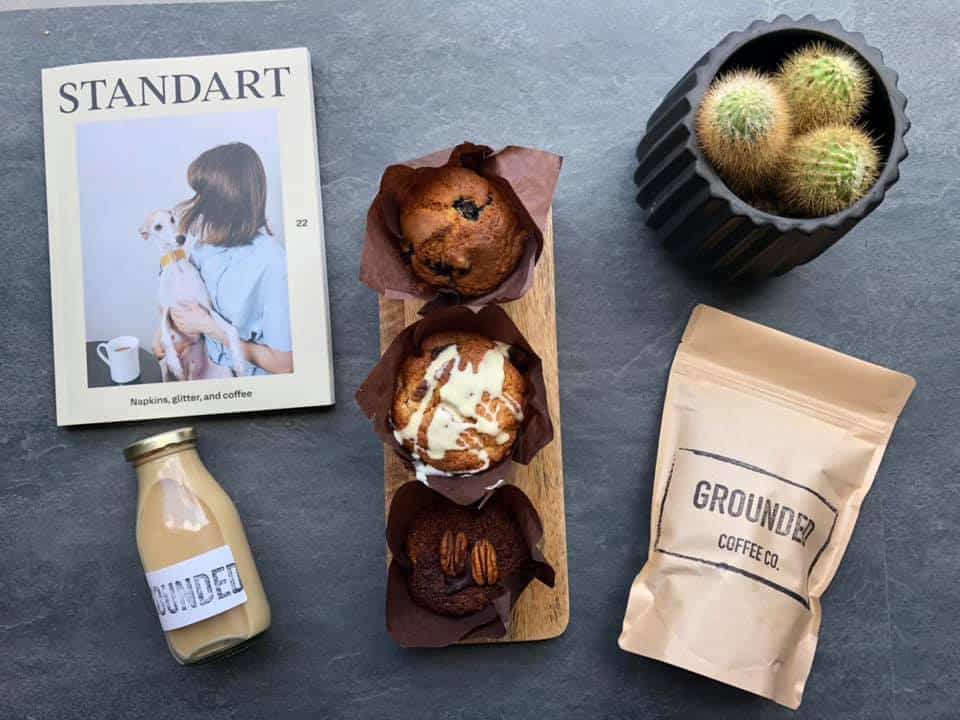
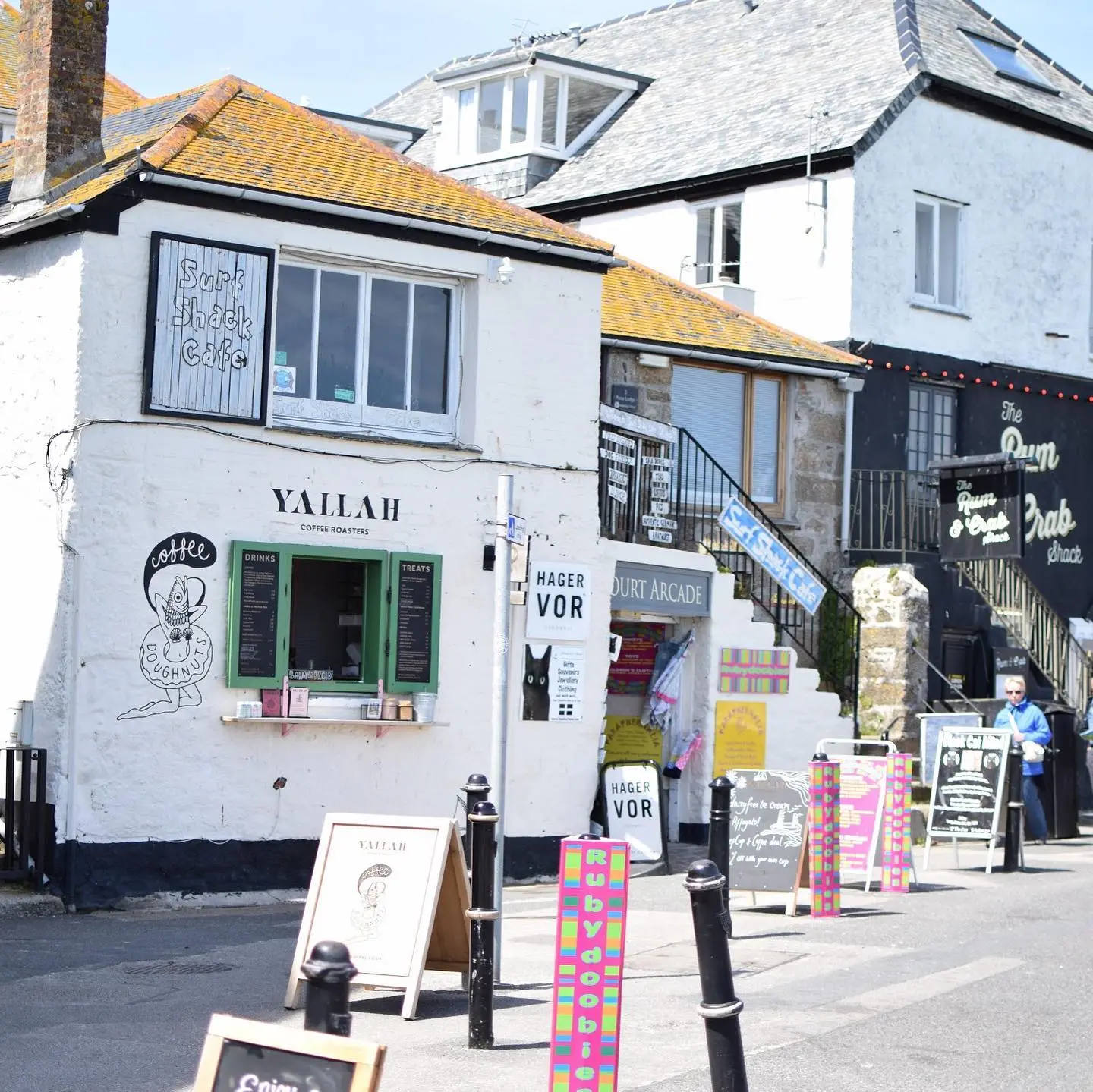
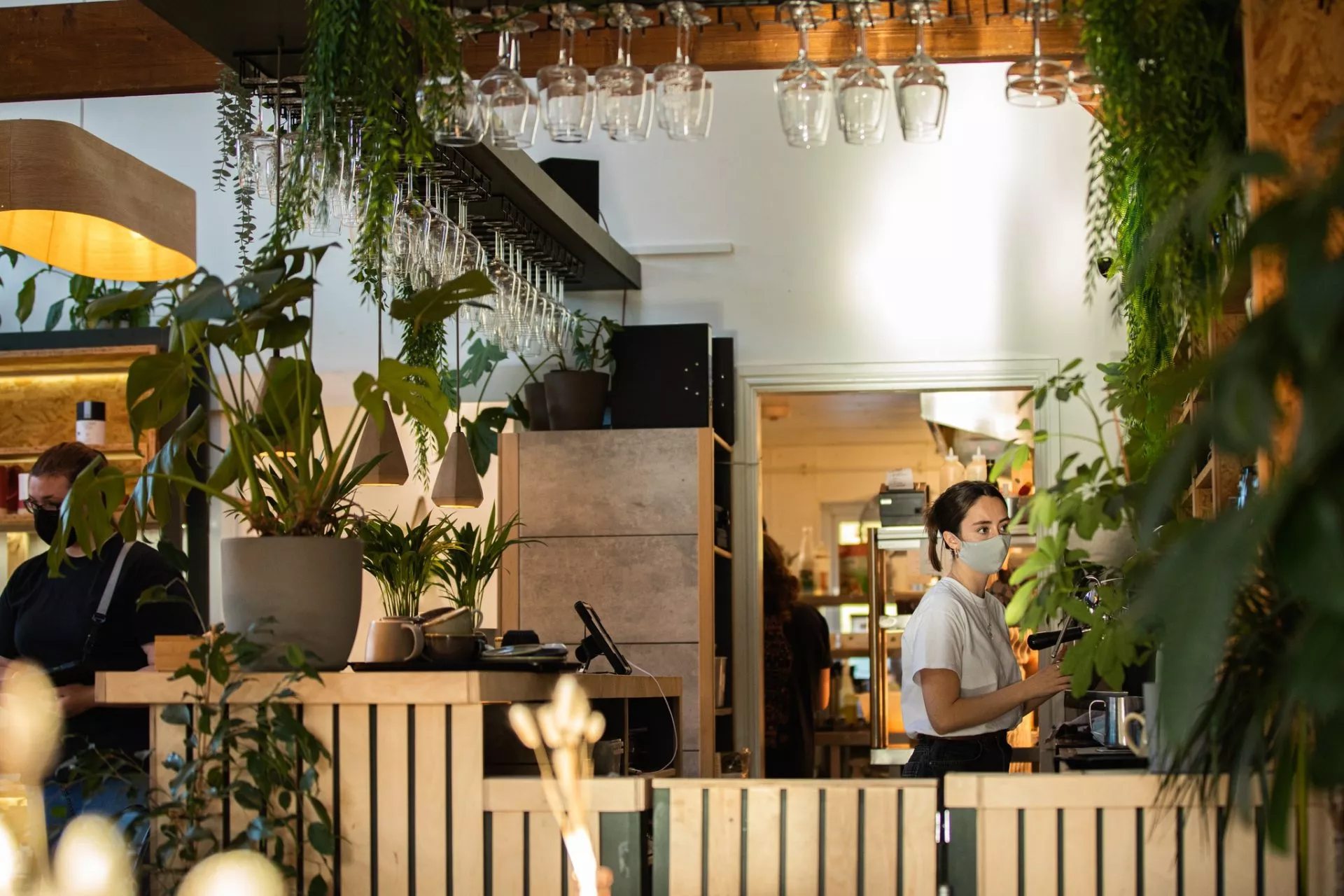
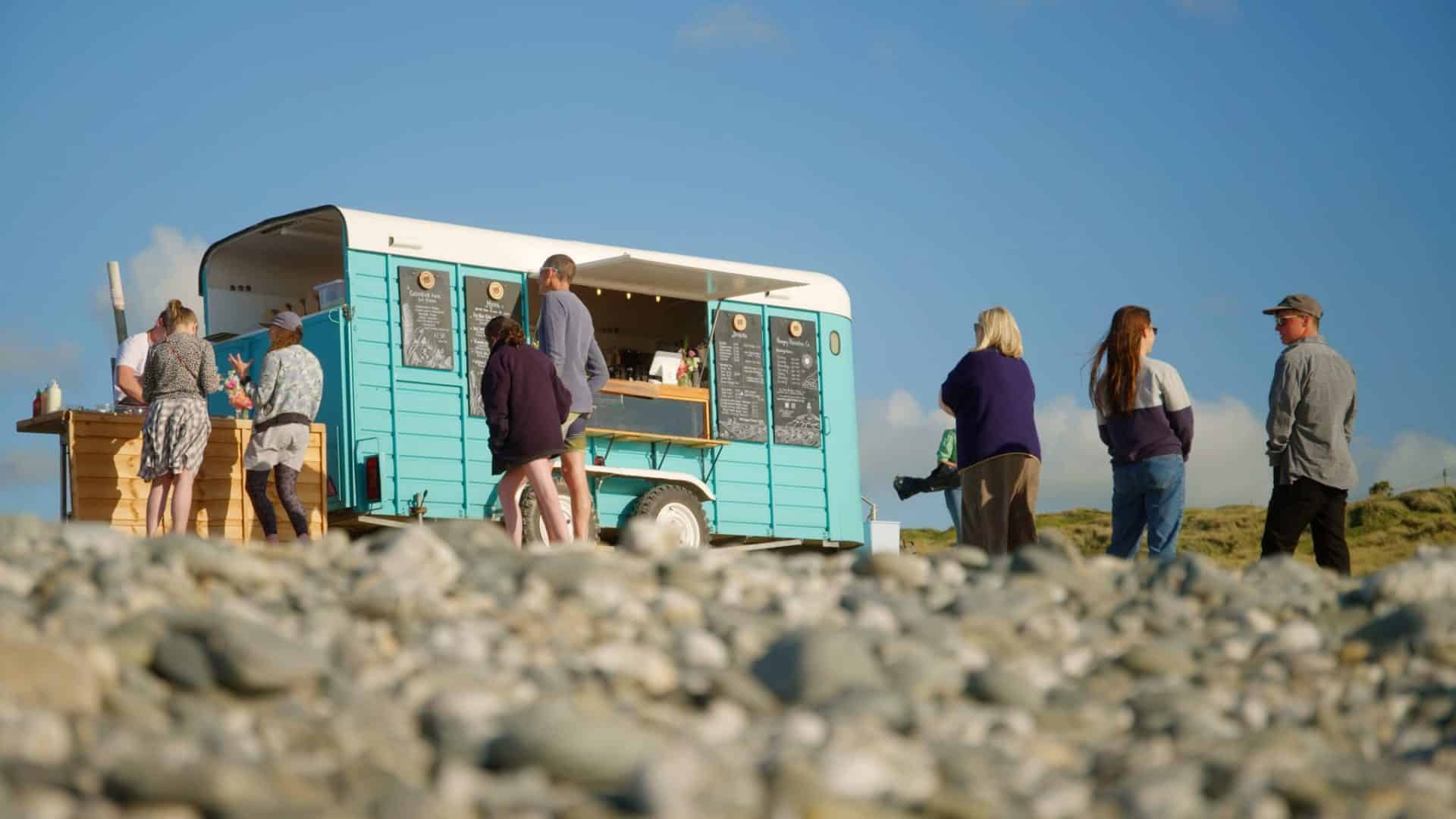
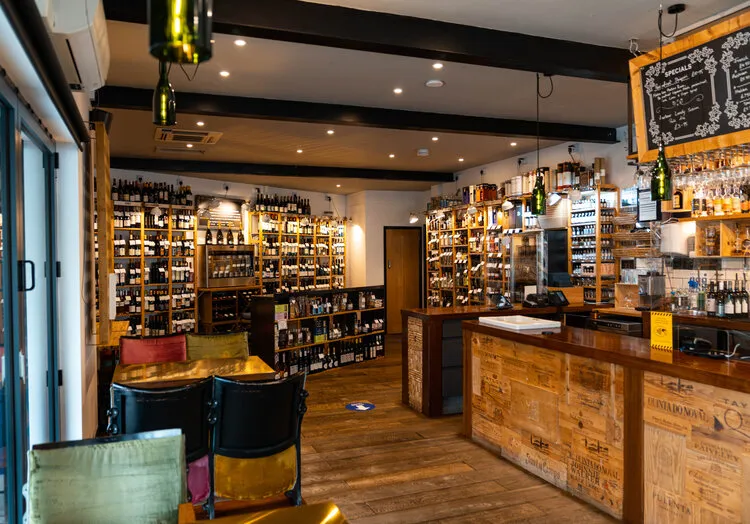
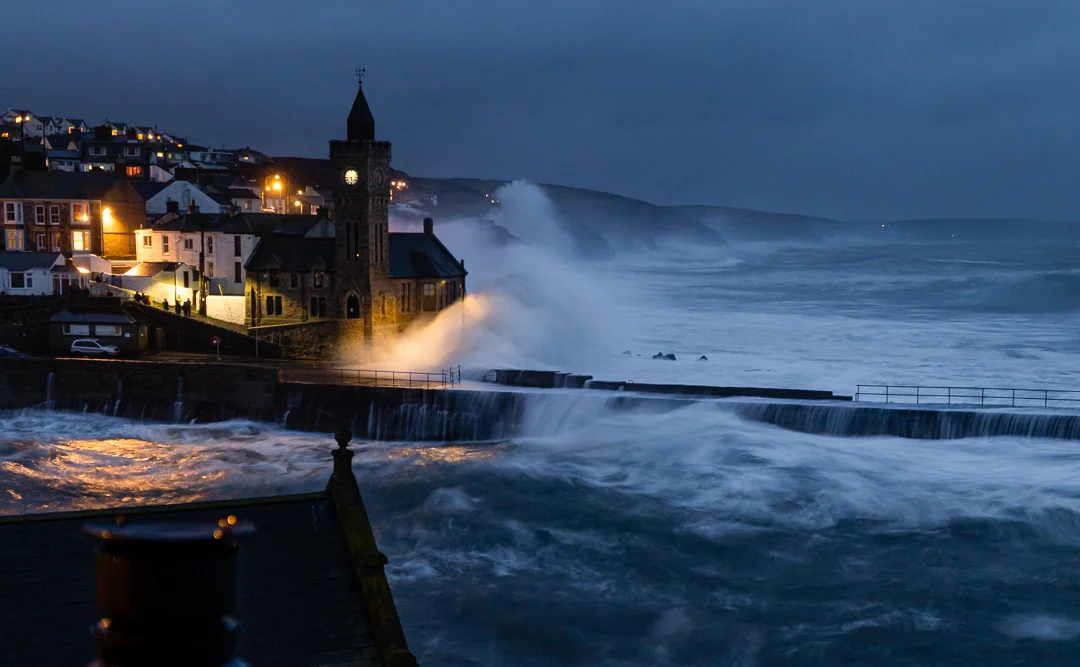
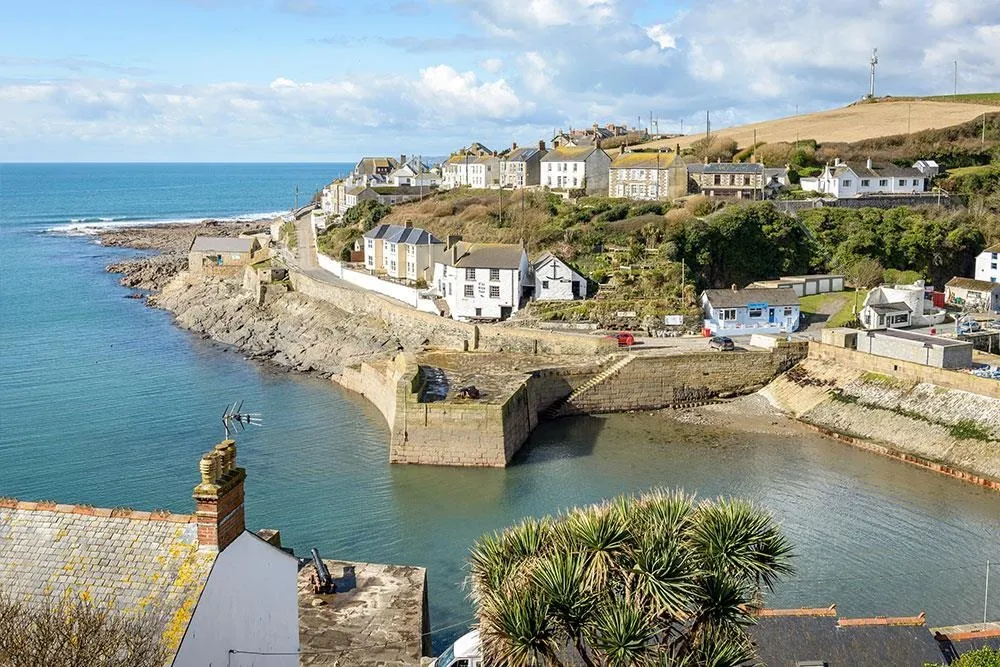
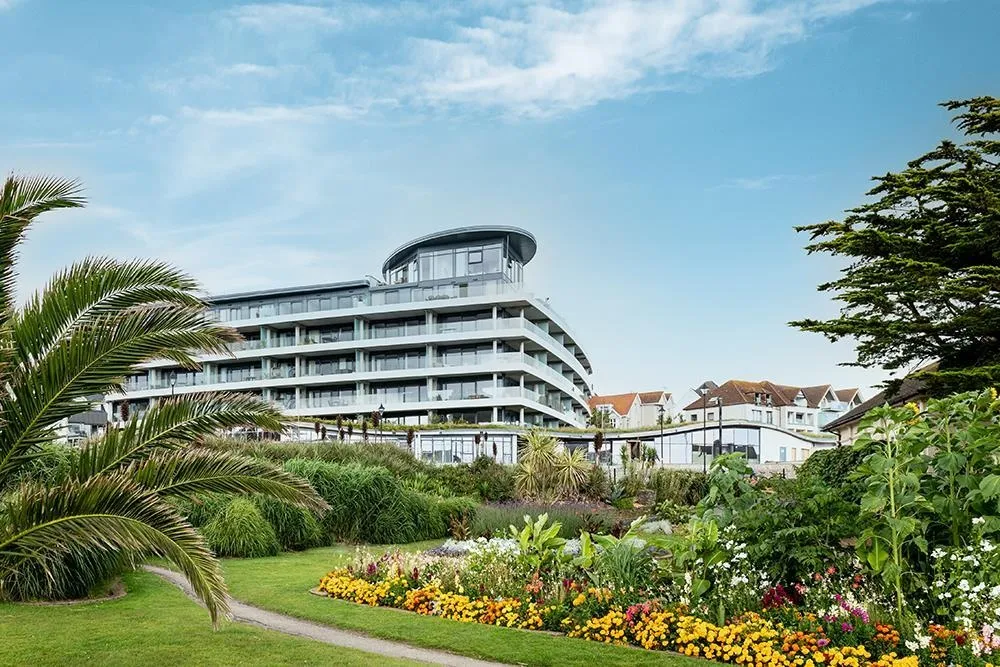
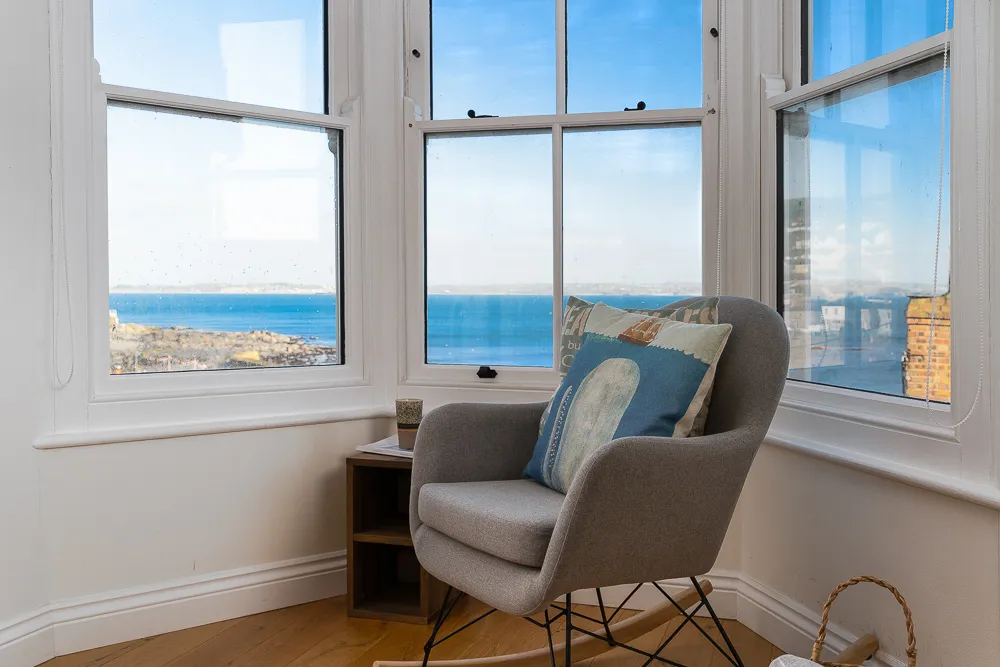
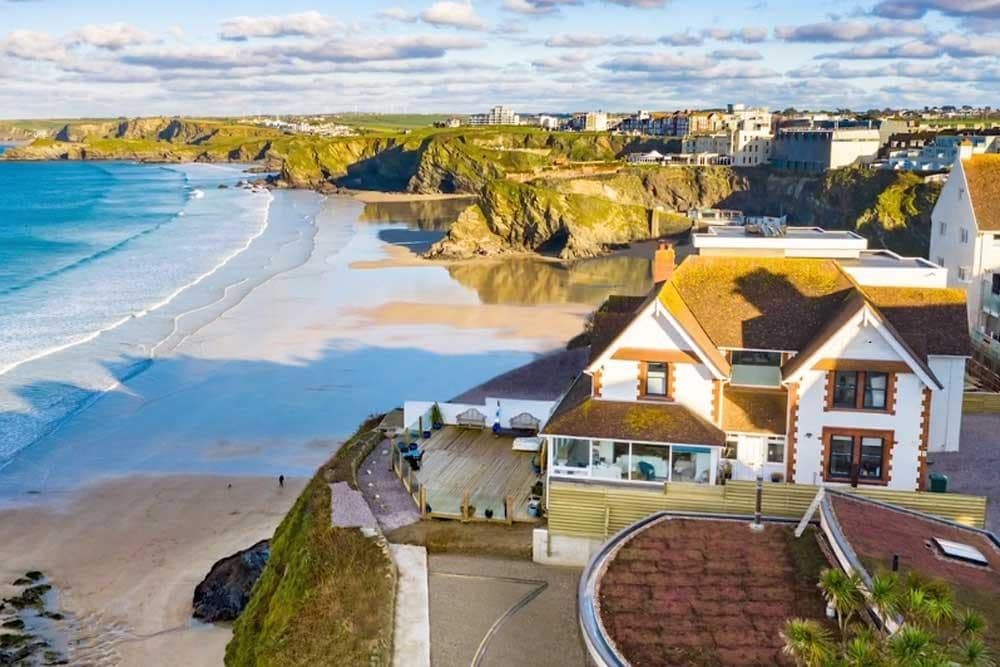
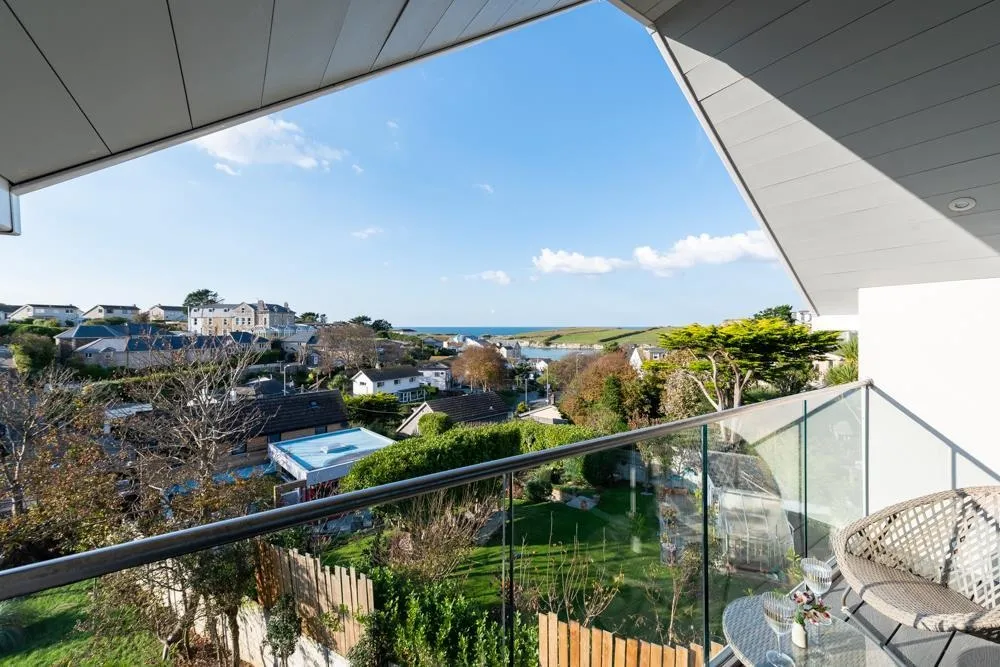
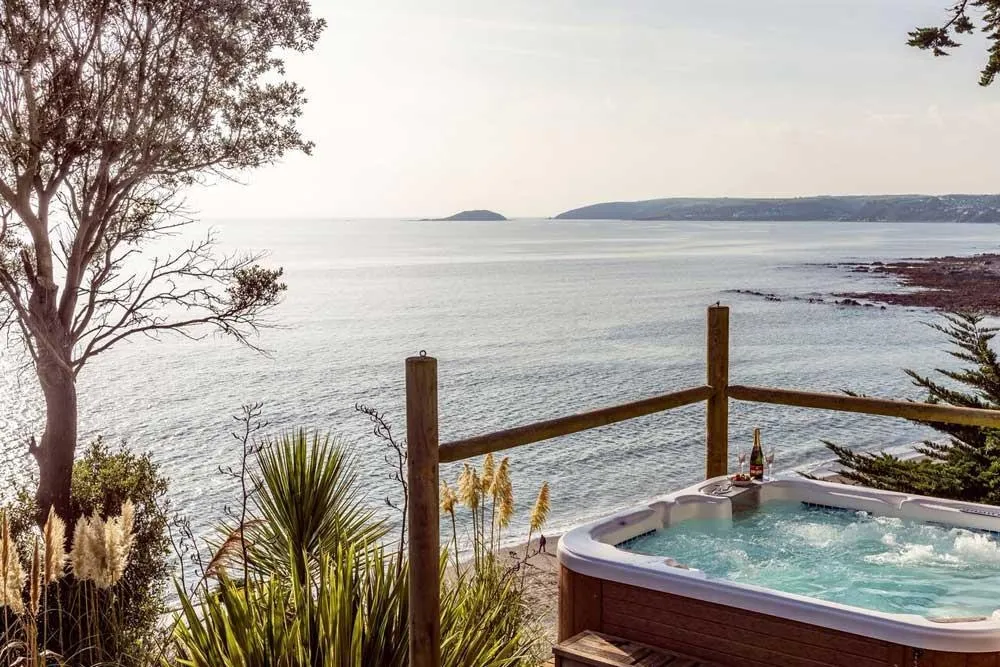
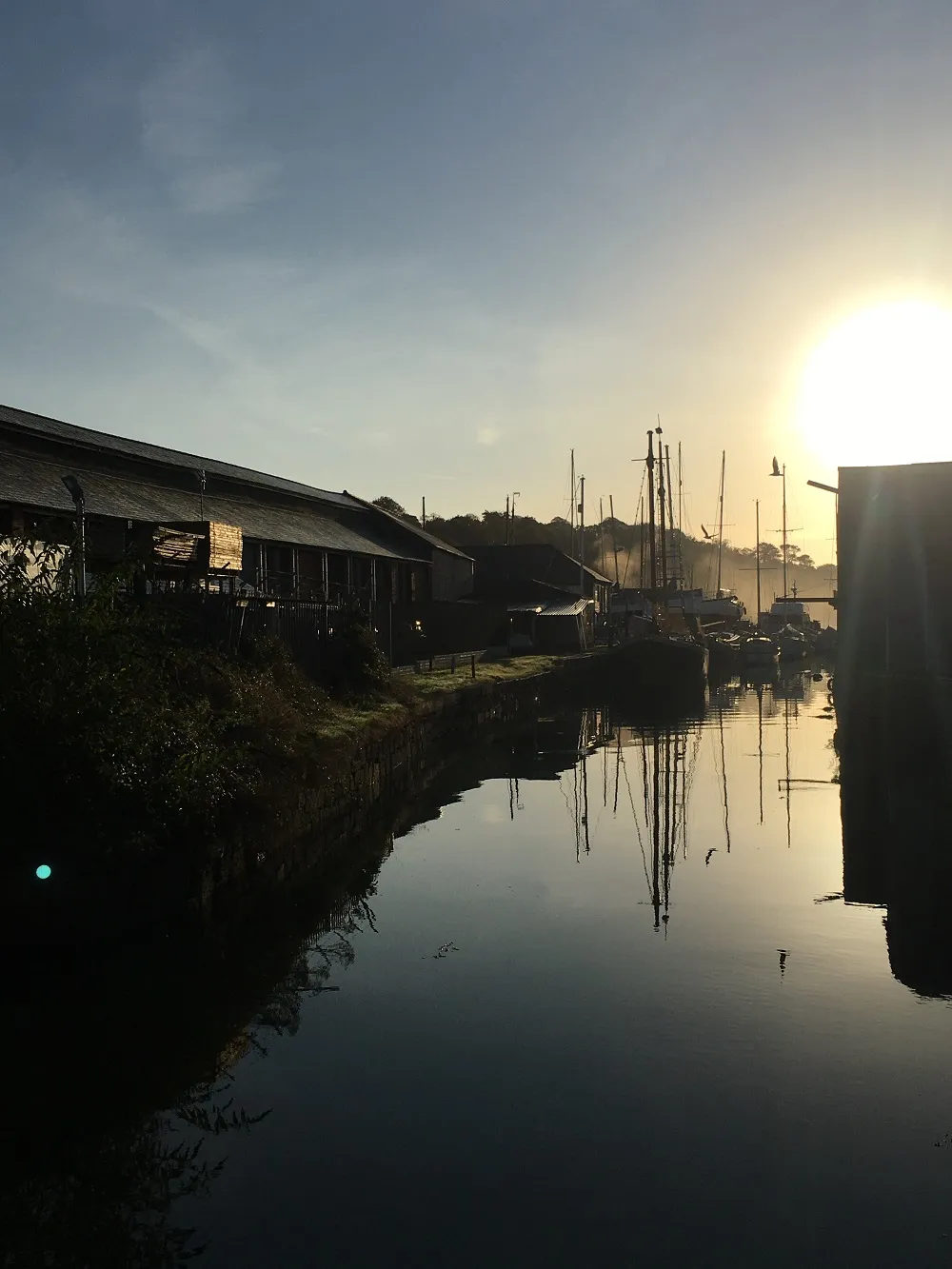
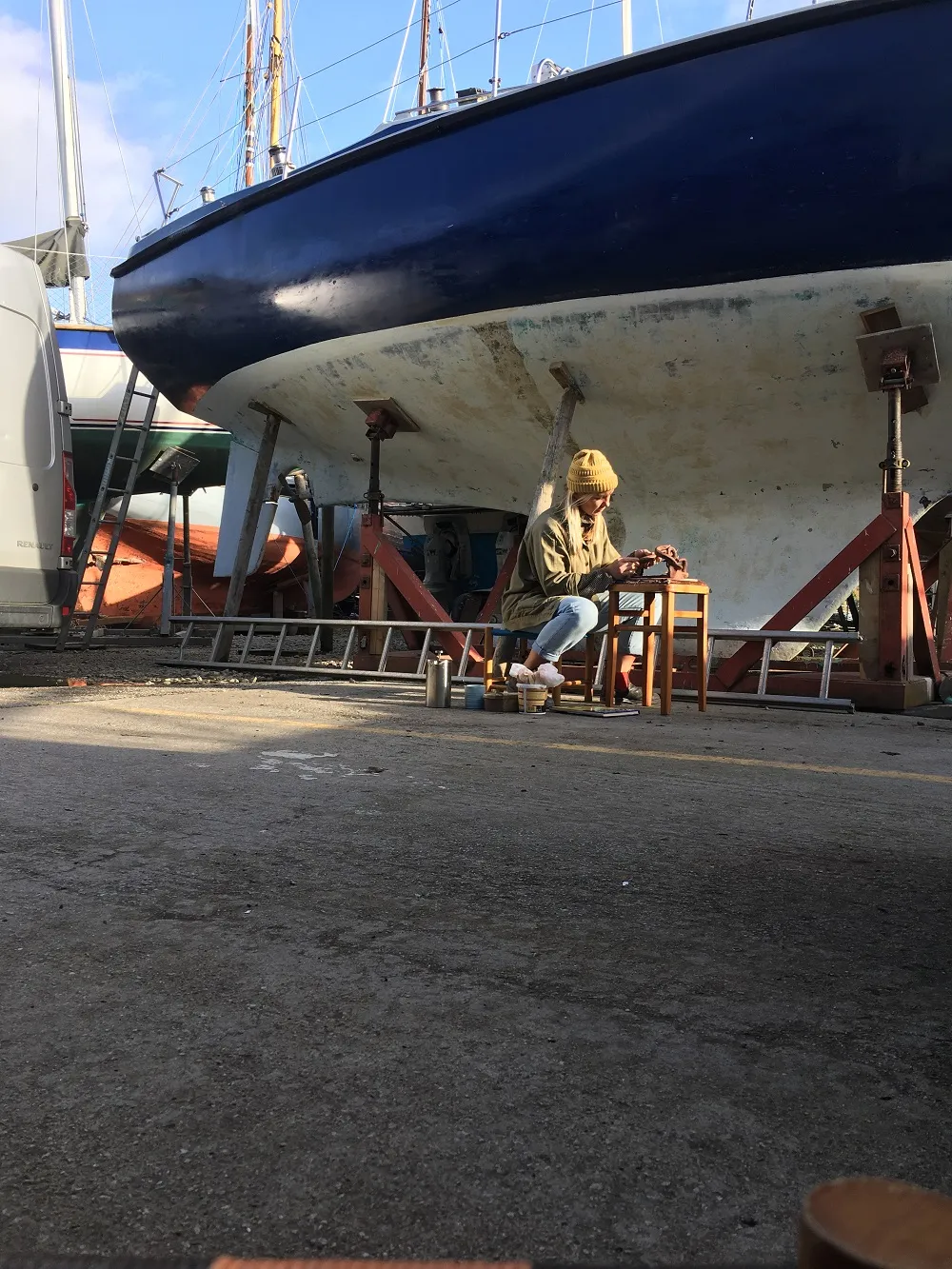
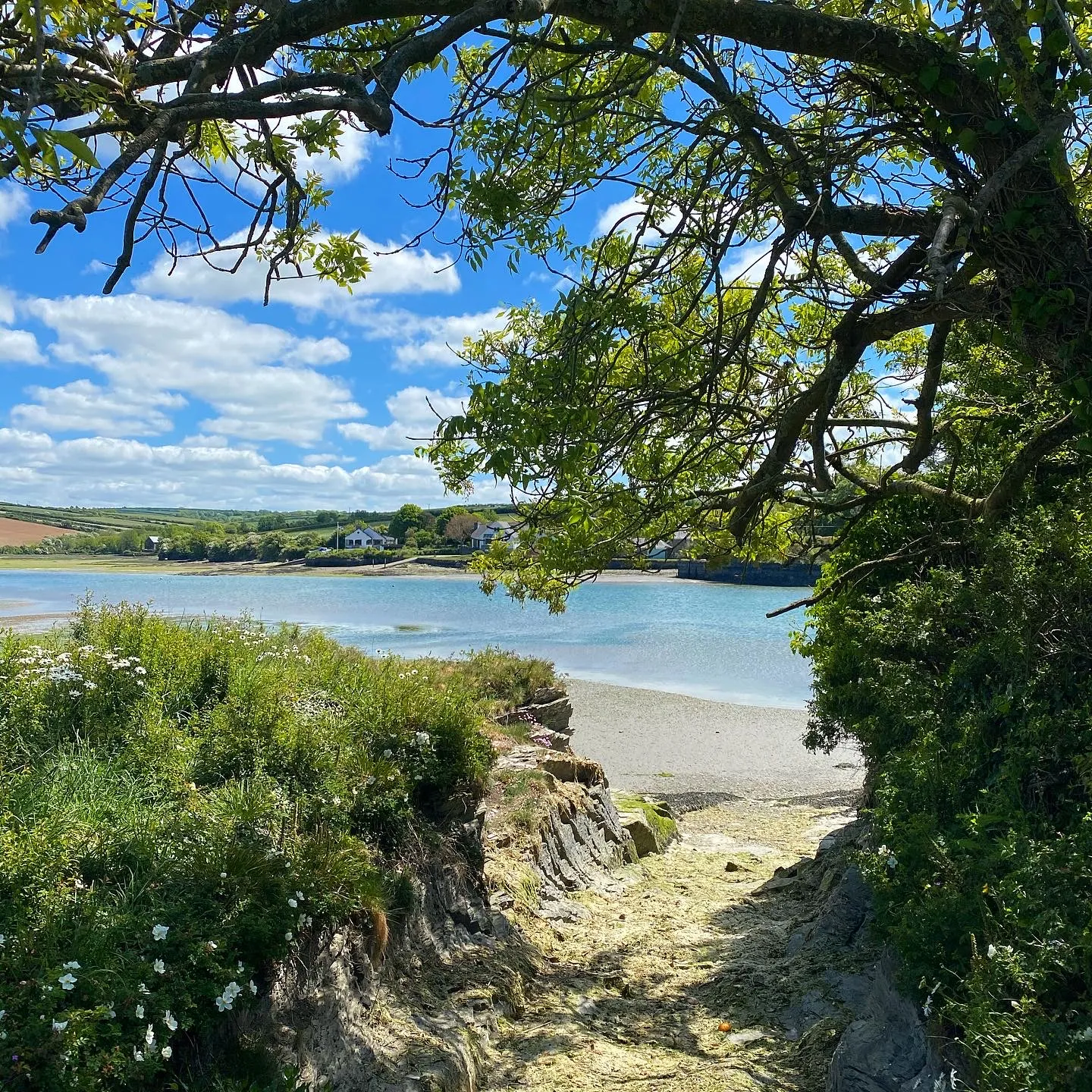
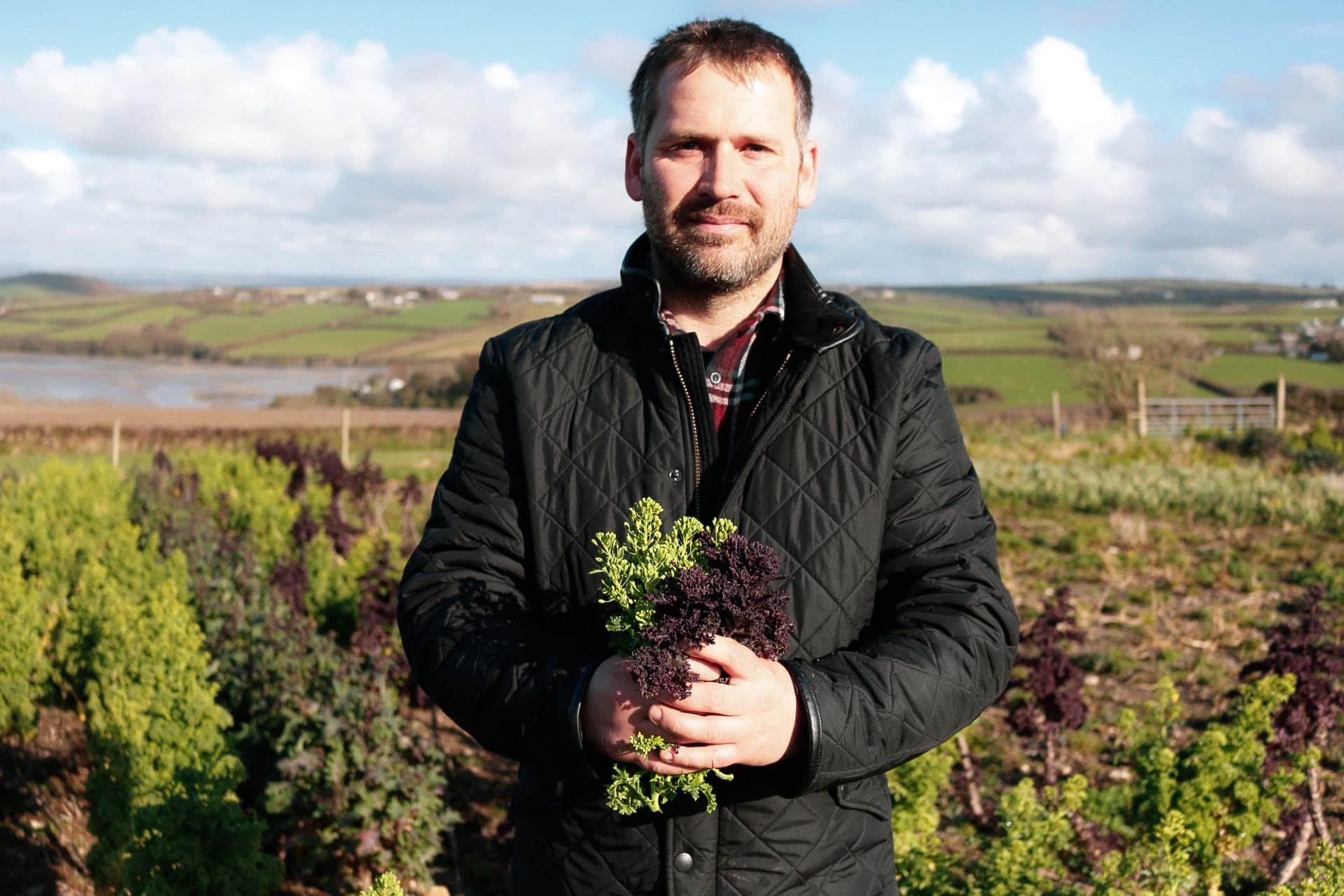
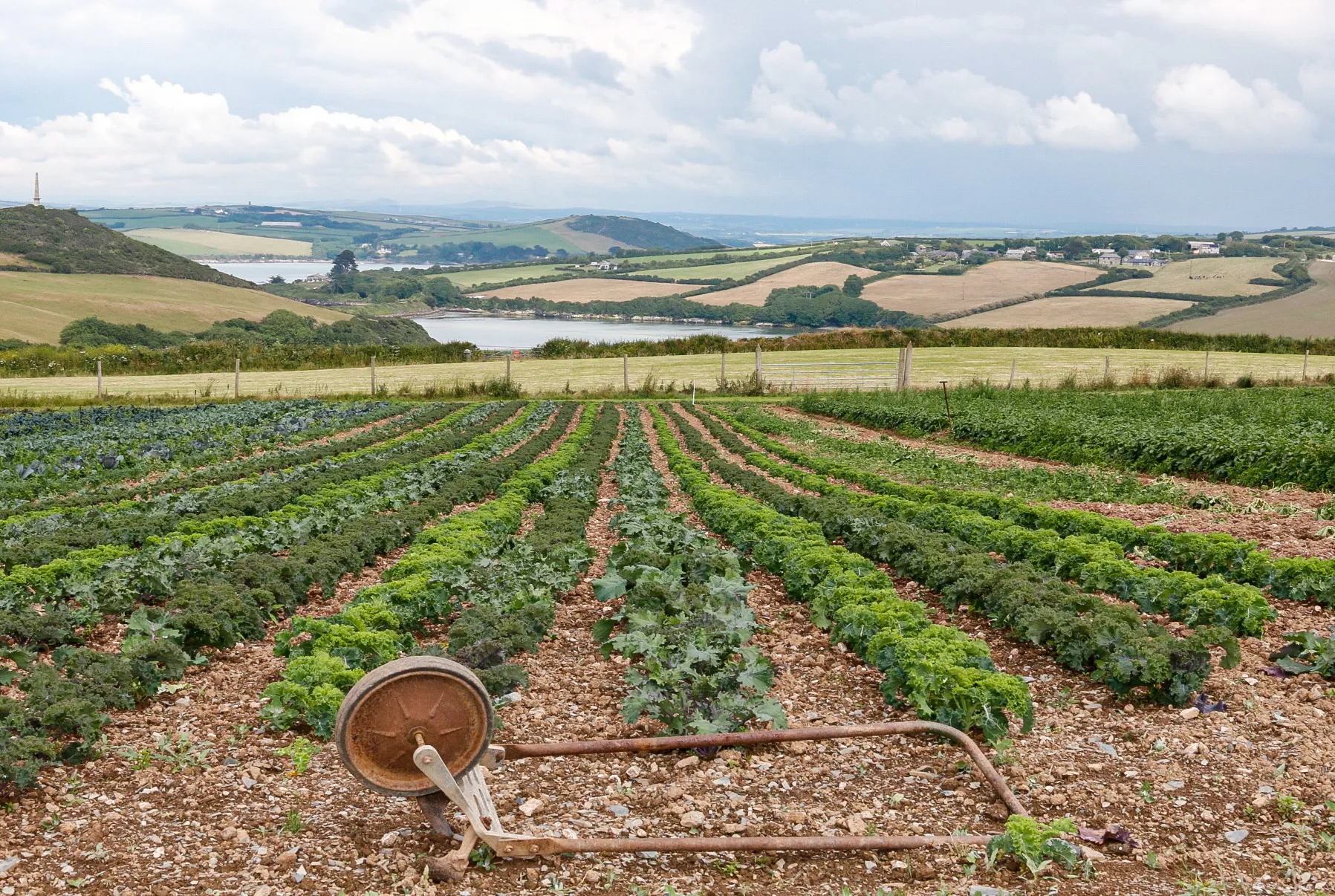
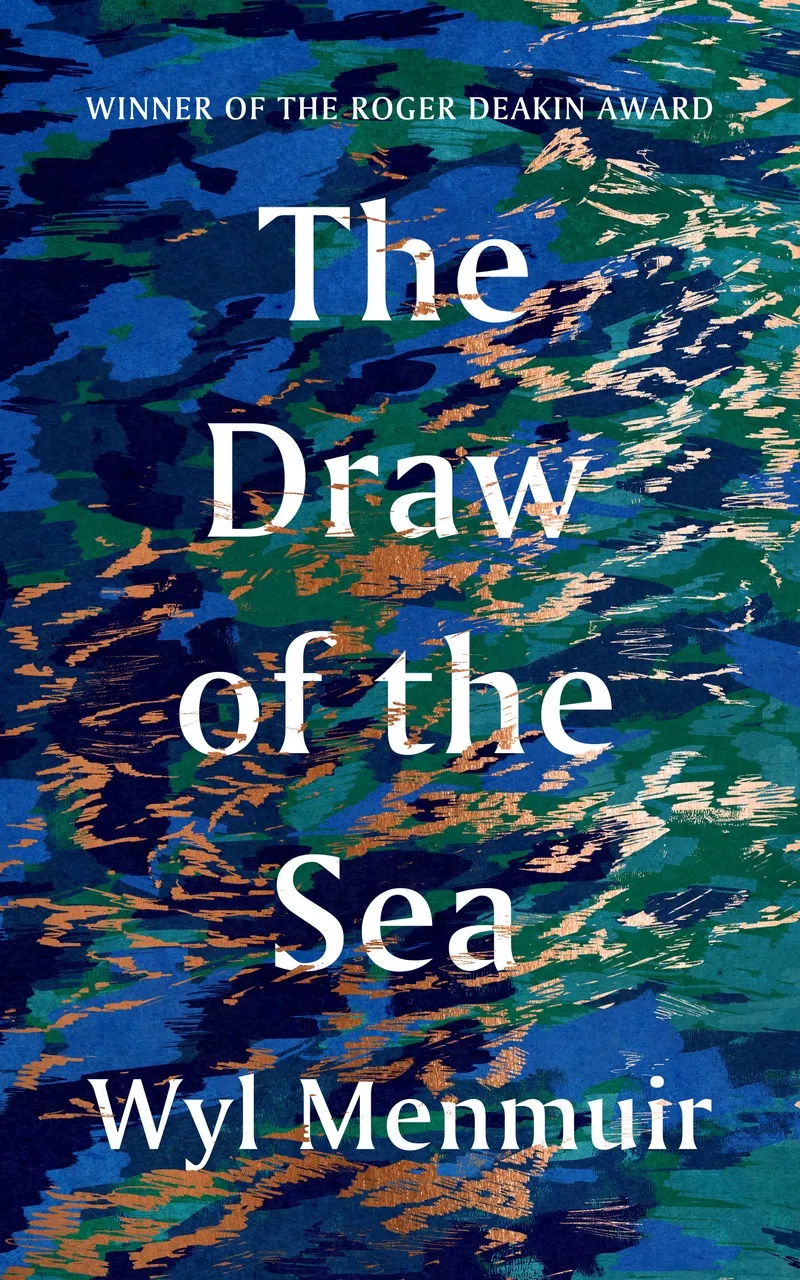
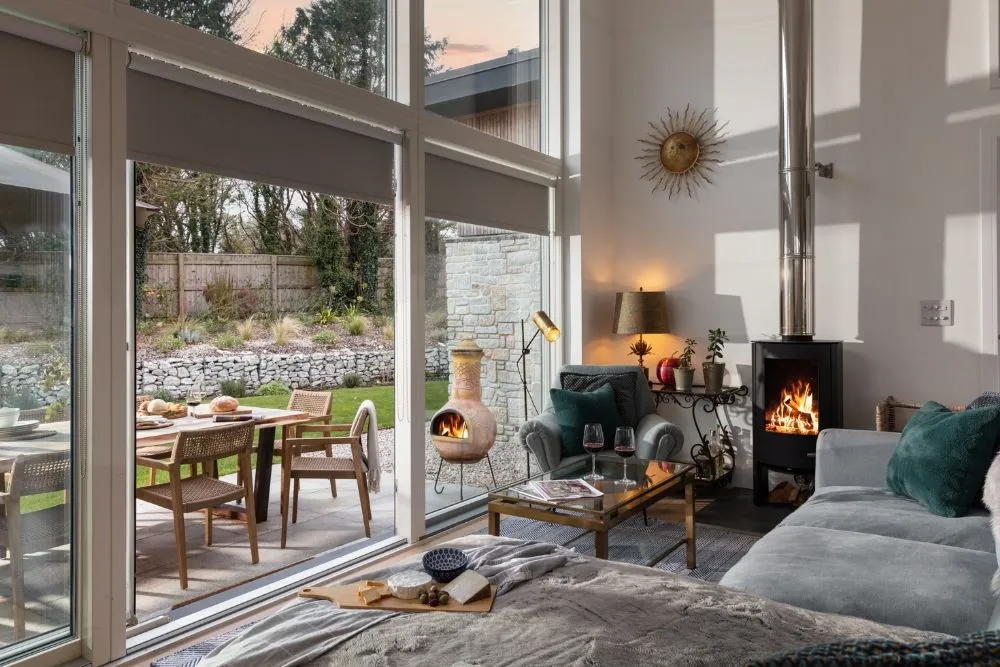
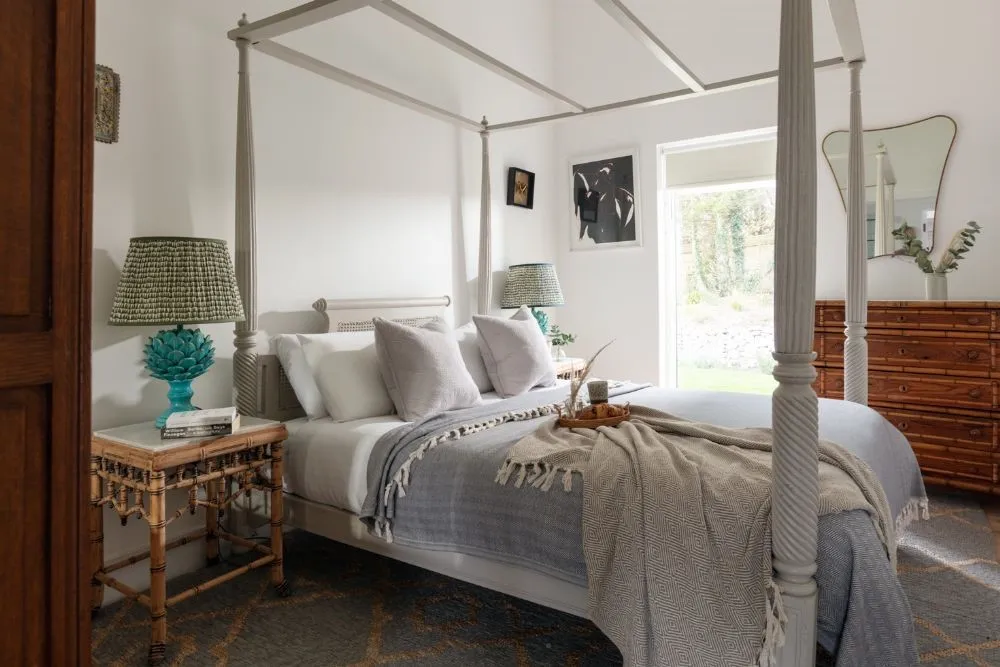
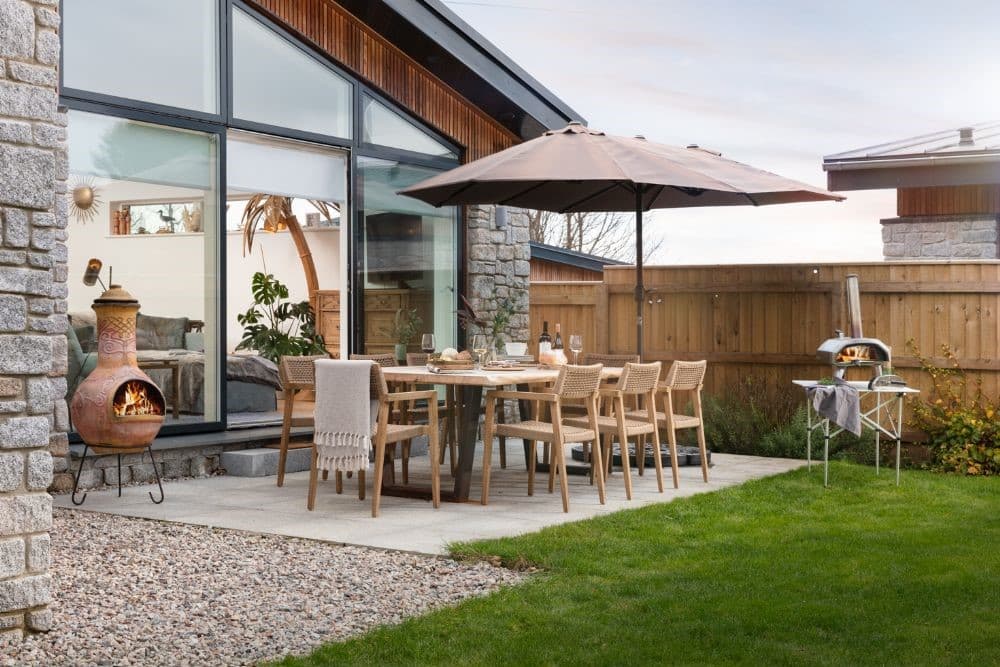
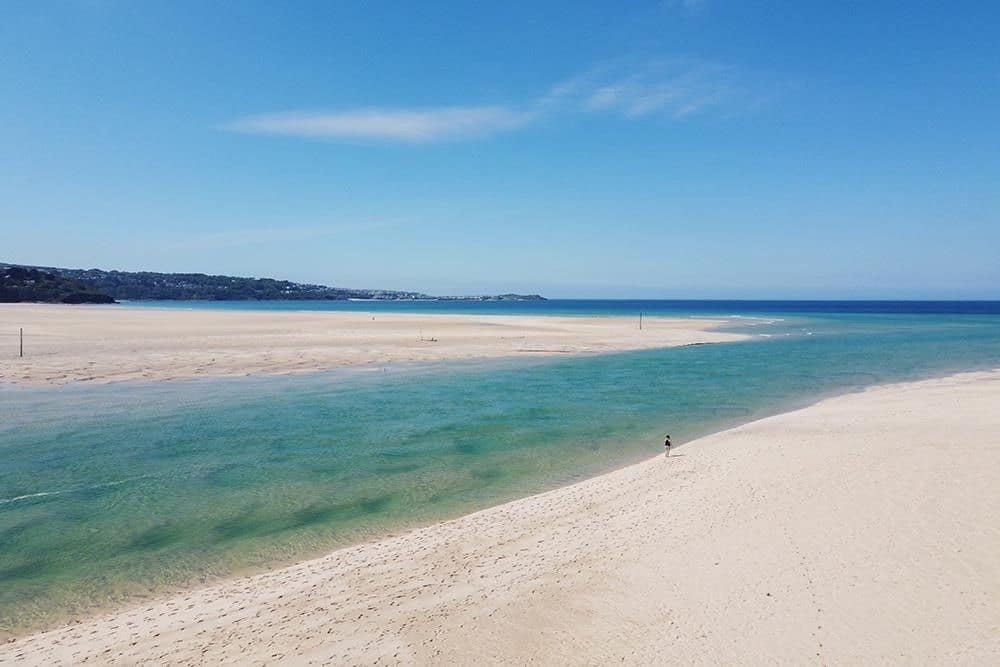

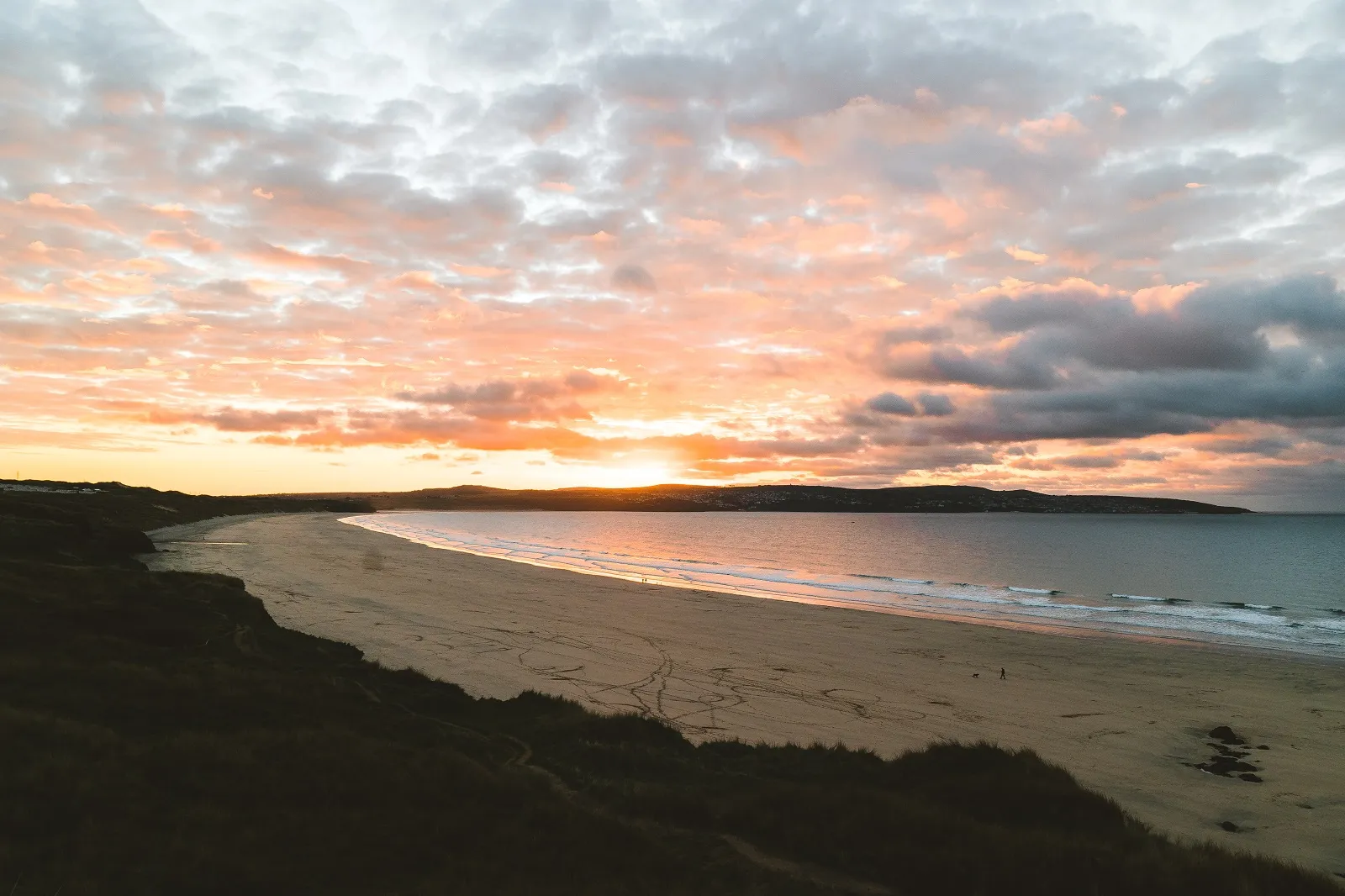
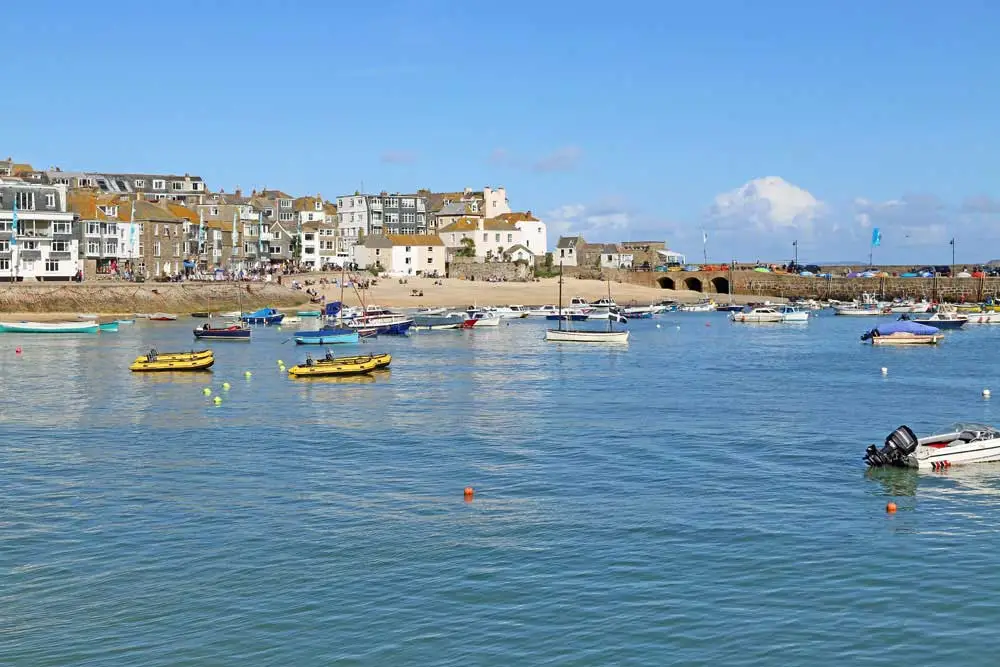
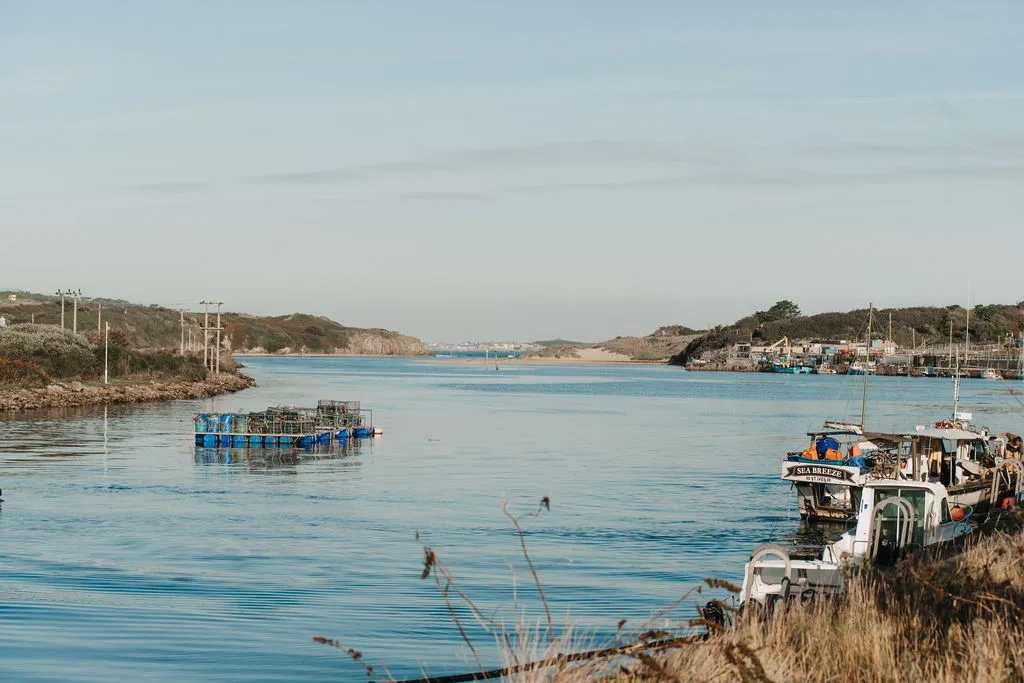
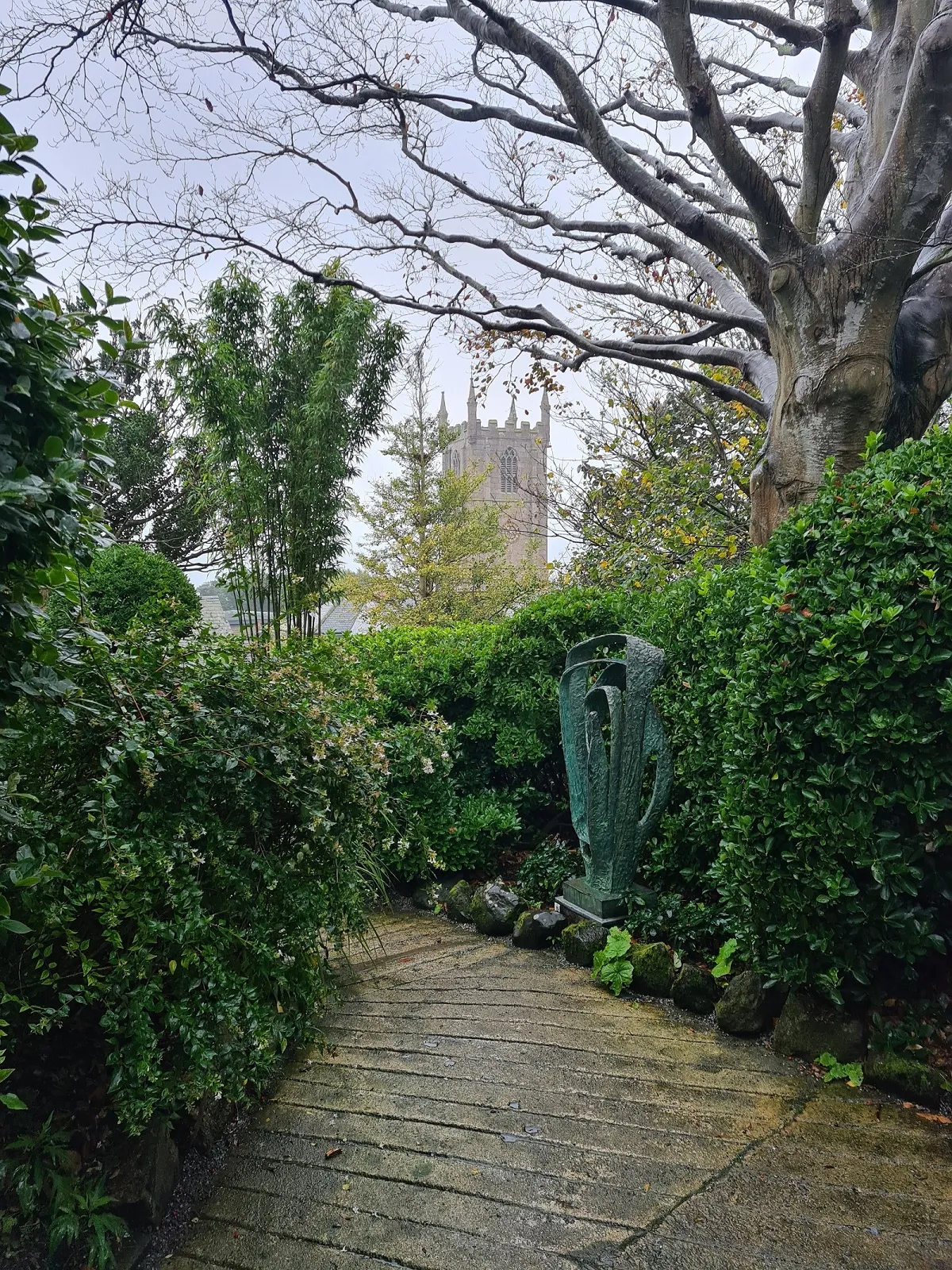
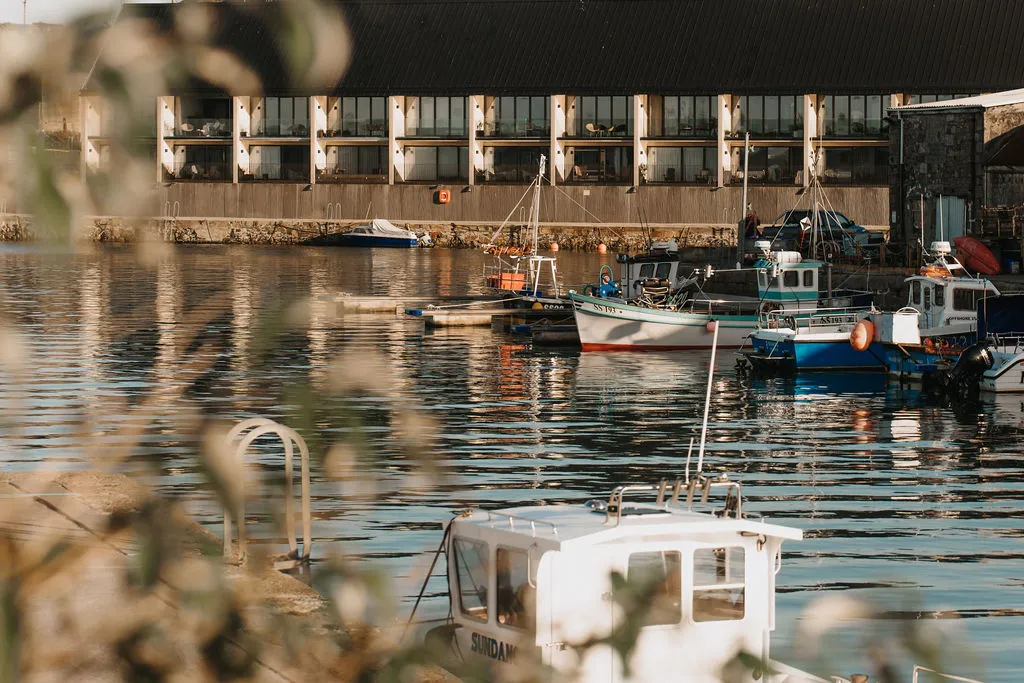
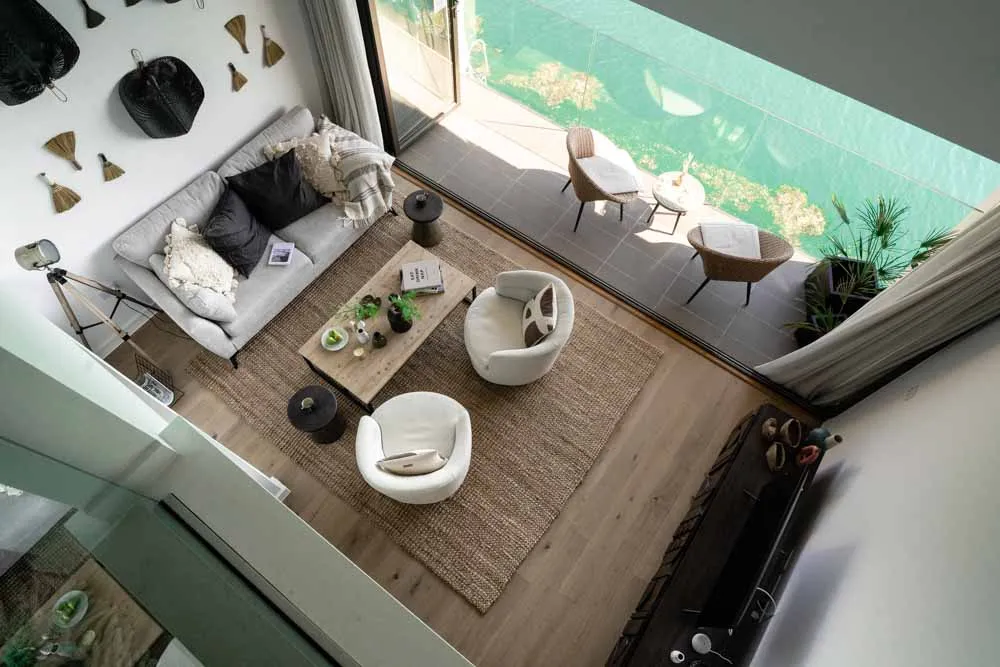
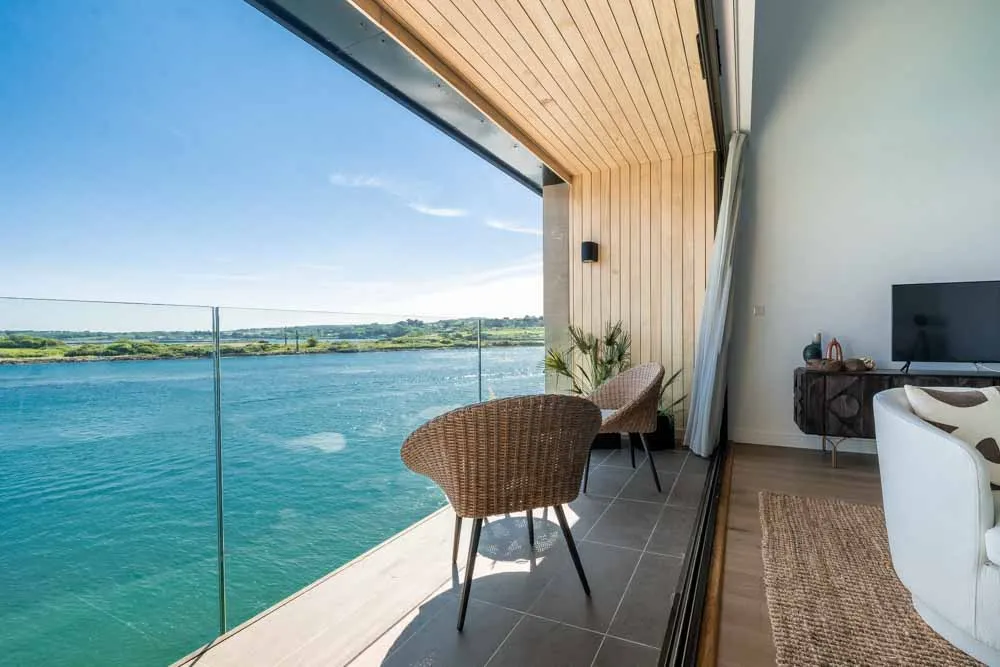
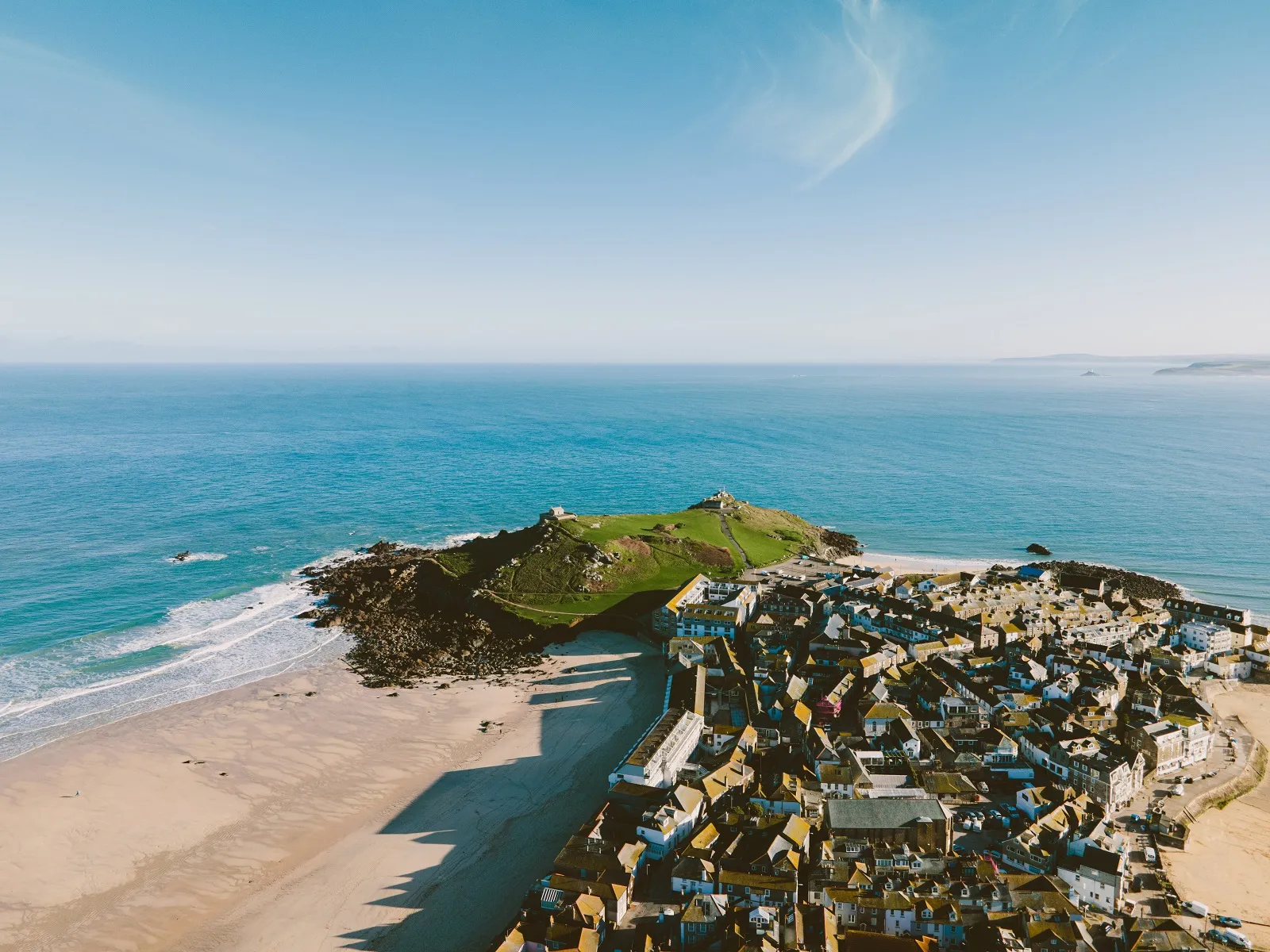 “Back in Hayle in the evening, we stick close to the water, and close to home: an atmospherically lit shack on the sand”
“Back in Hayle in the evening, we stick close to the water, and close to home: an atmospherically lit shack on the sand”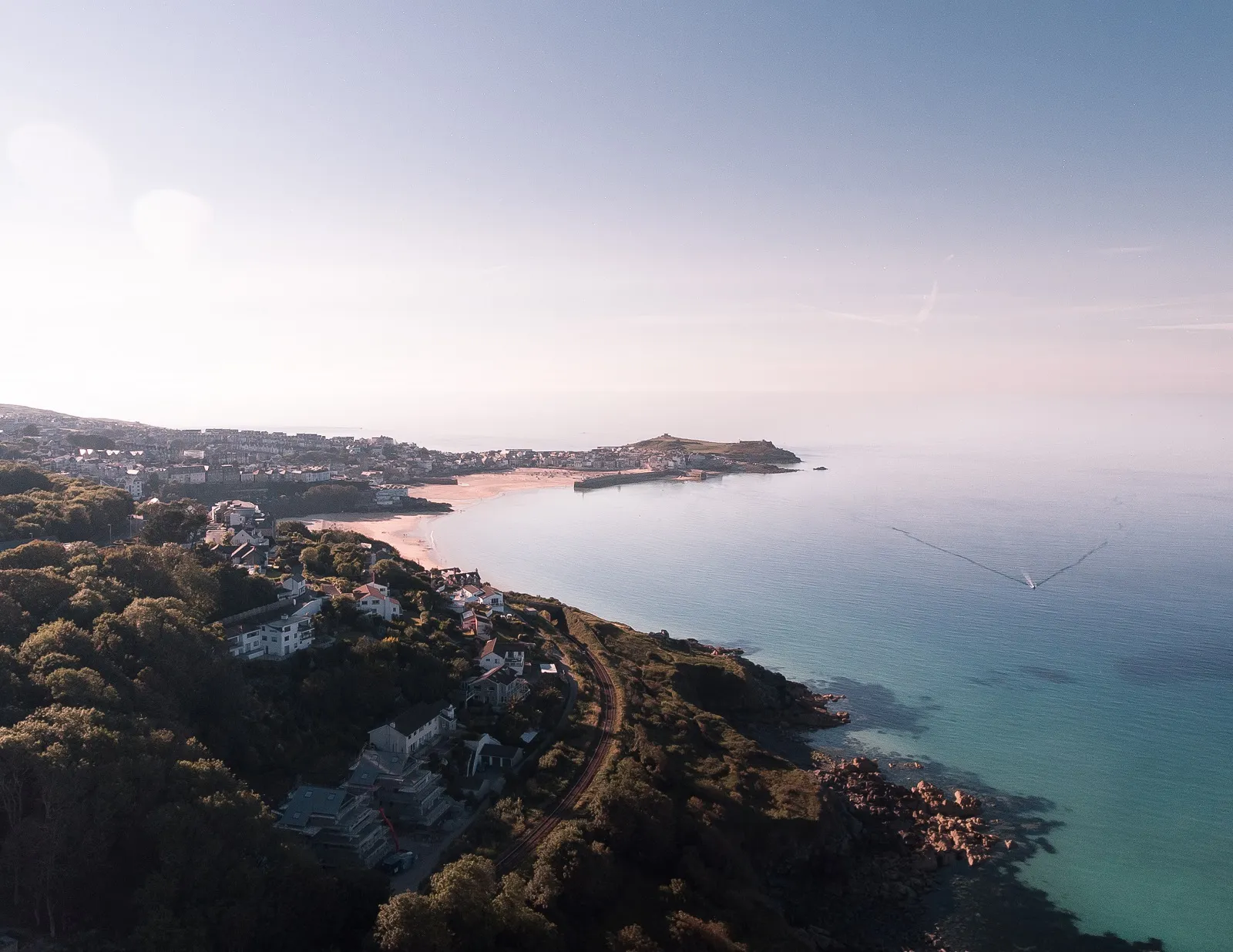 Later, from the generous windows of the fourth floor cafe, I spot miniature surfers bobbing on the distant waves, and I am mesmerised for hours by their relentless energy and the movement of the water. At ground level, a glass enclosed restaurant across the road gives a closer view, hovering just over the sands of Porthmeor Beach, alongside seagulls and above the smattering of spectators gathered to appreciate the water sports.
Later, from the generous windows of the fourth floor cafe, I spot miniature surfers bobbing on the distant waves, and I am mesmerised for hours by their relentless energy and the movement of the water. At ground level, a glass enclosed restaurant across the road gives a closer view, hovering just over the sands of Porthmeor Beach, alongside seagulls and above the smattering of spectators gathered to appreciate the water sports.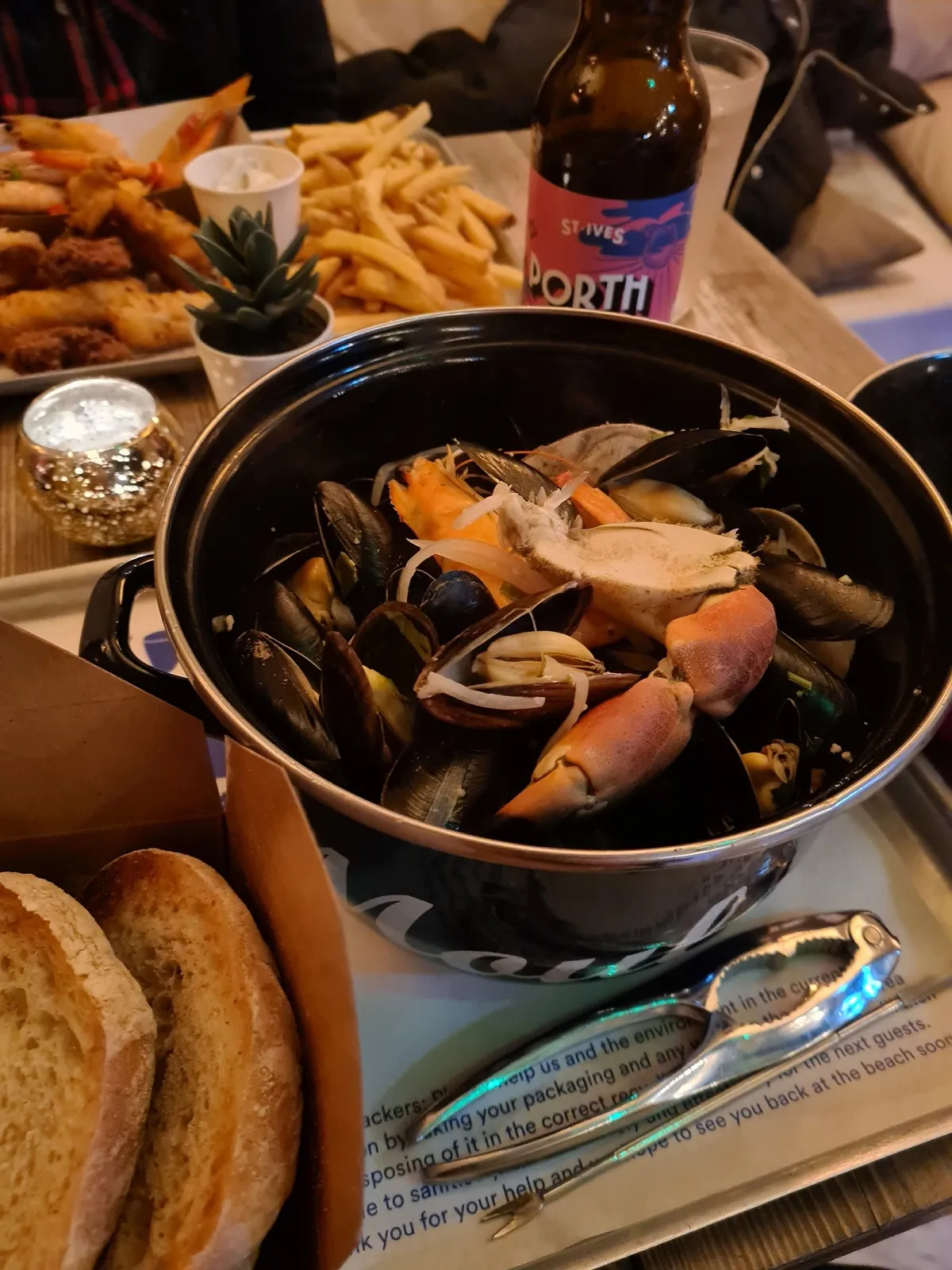
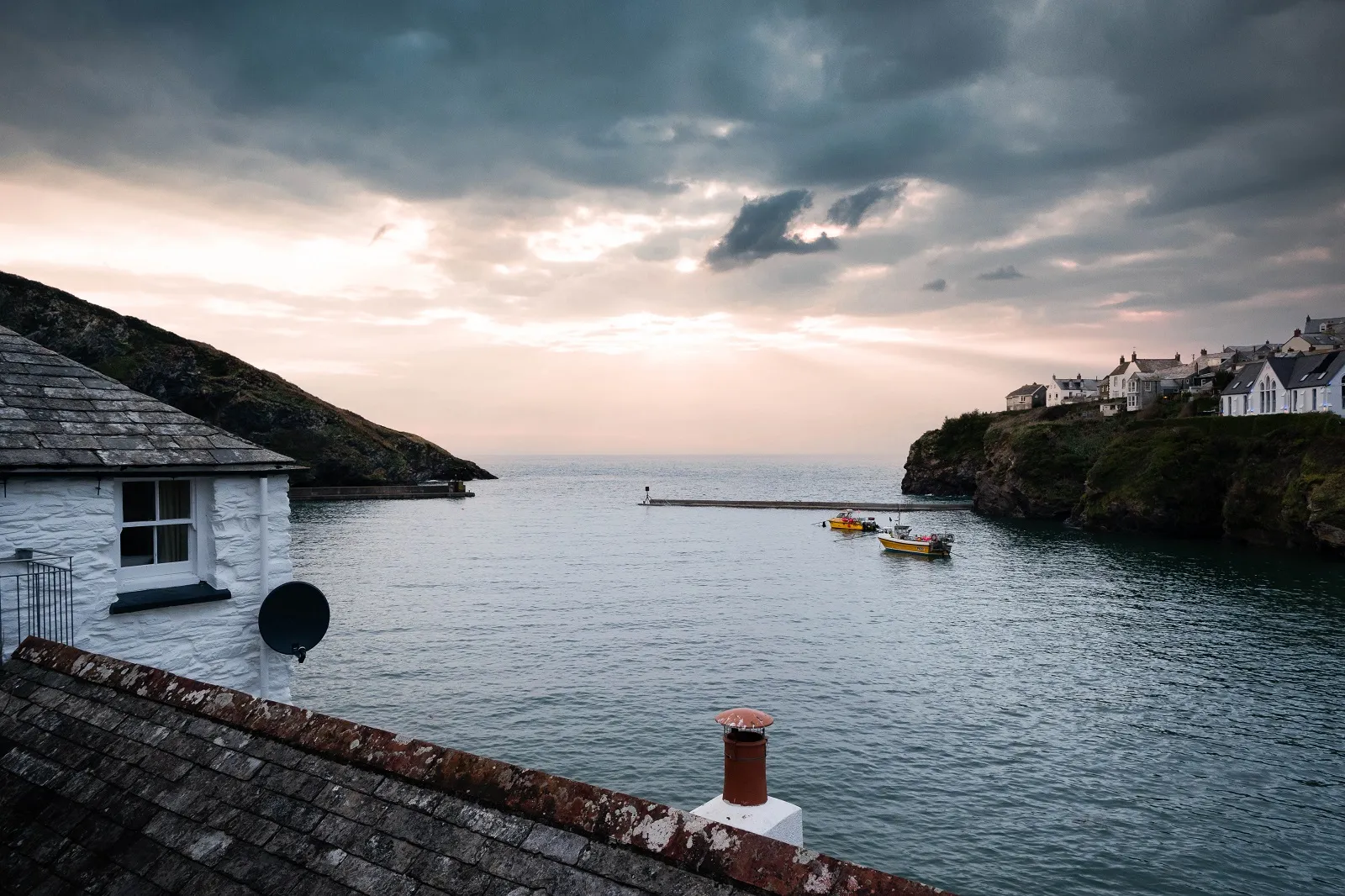
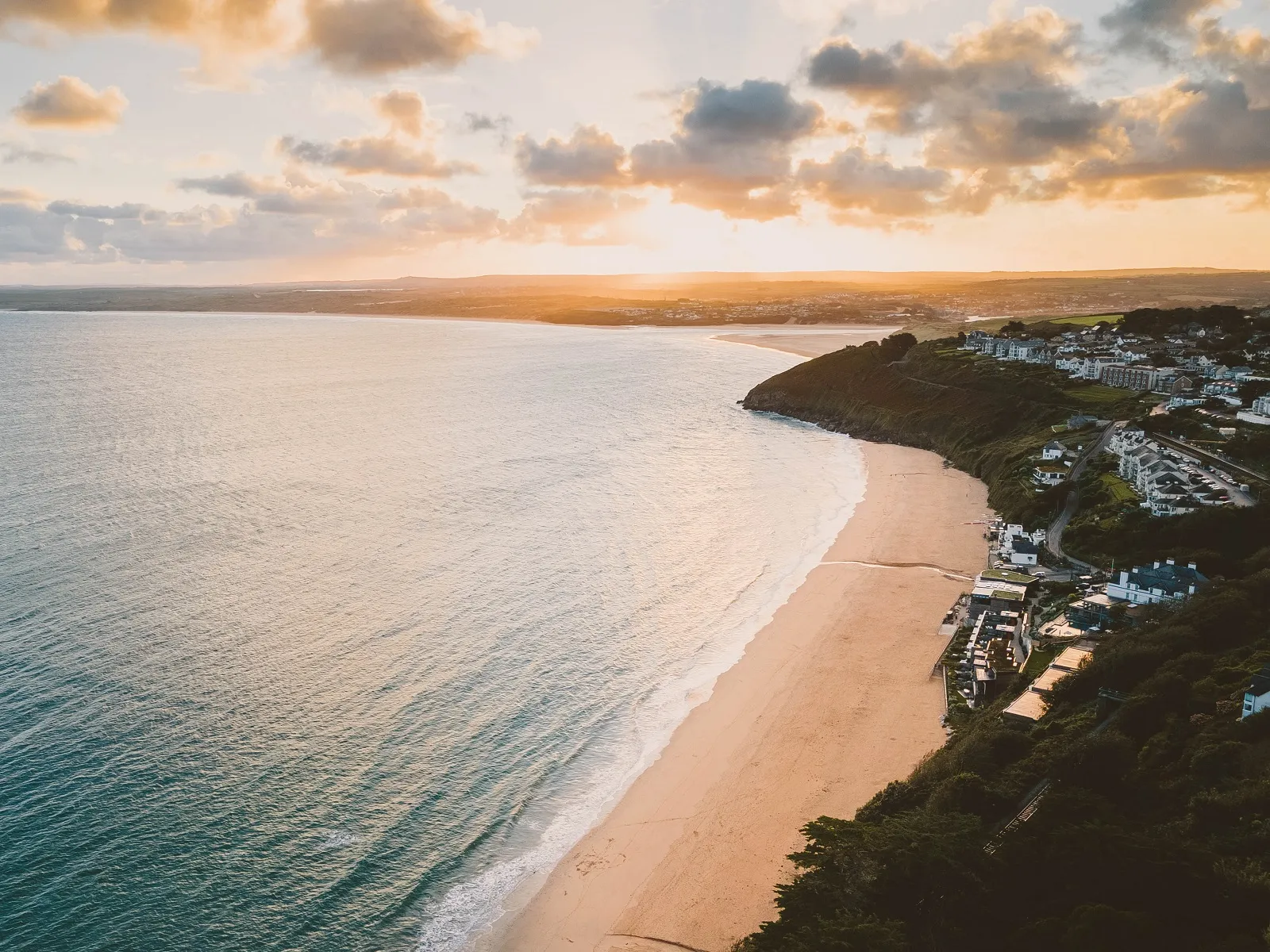
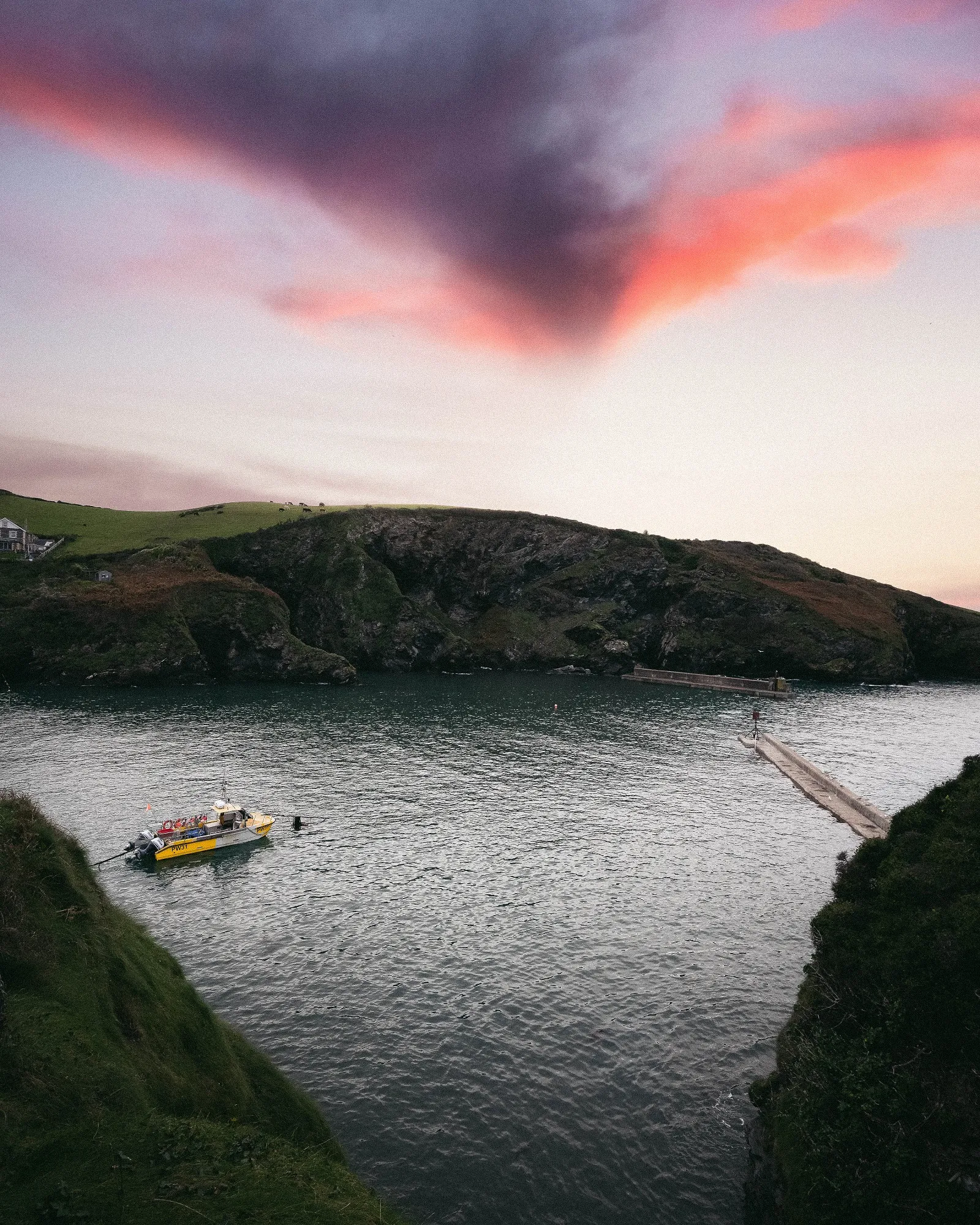
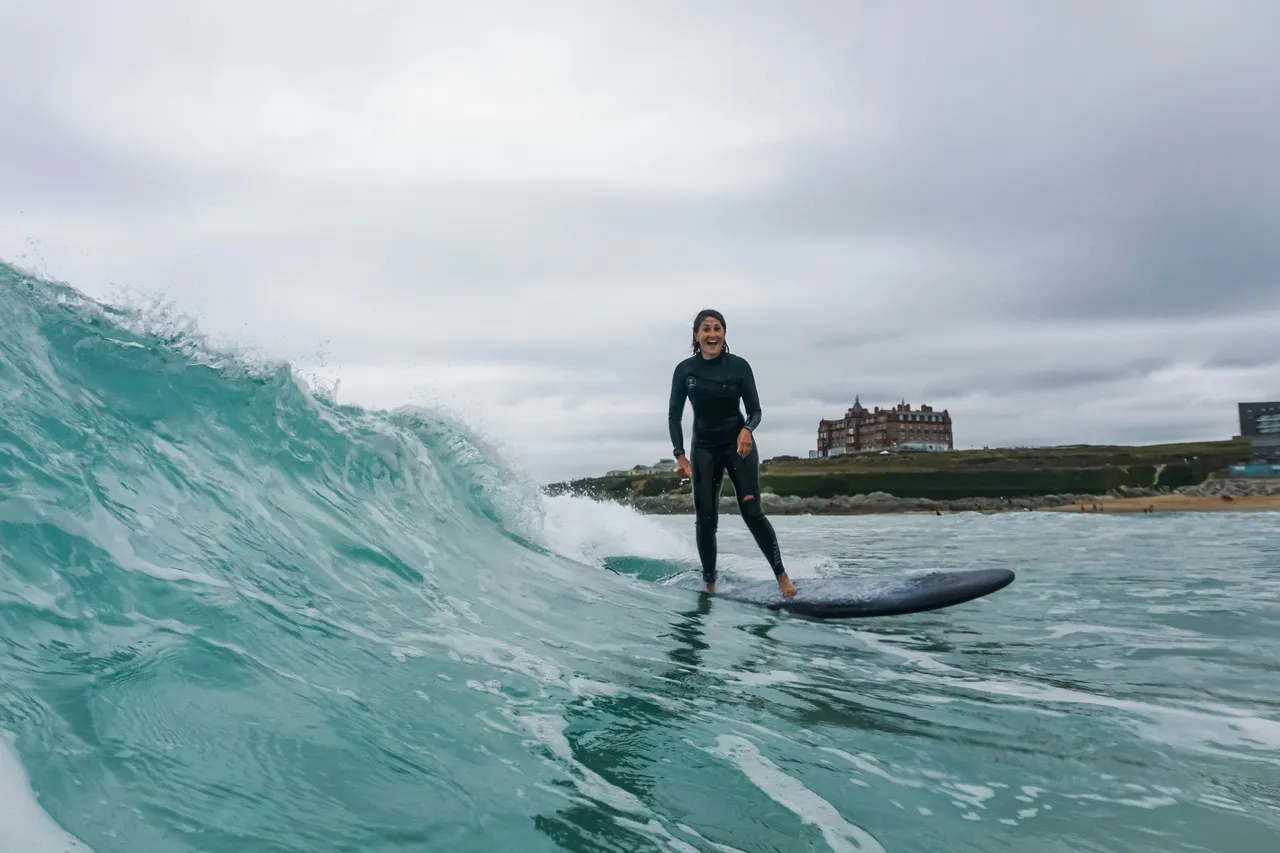 Credit: Women and Waves, @catgram810
Credit: Women and Waves, @catgram810